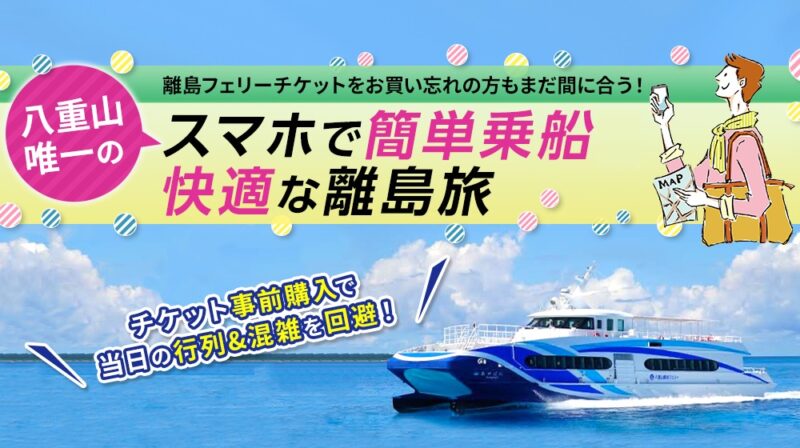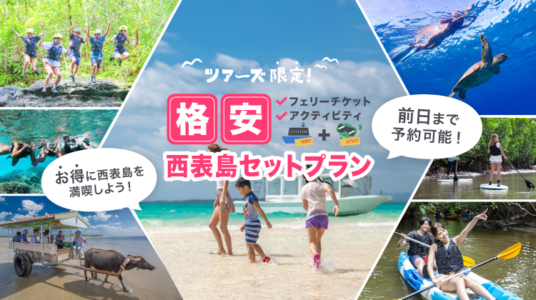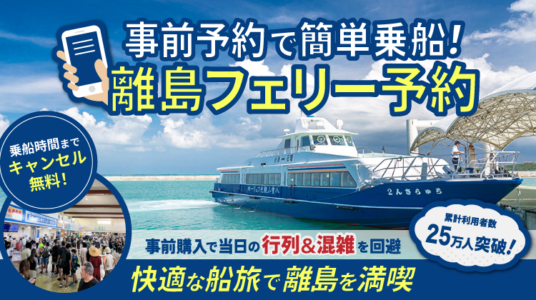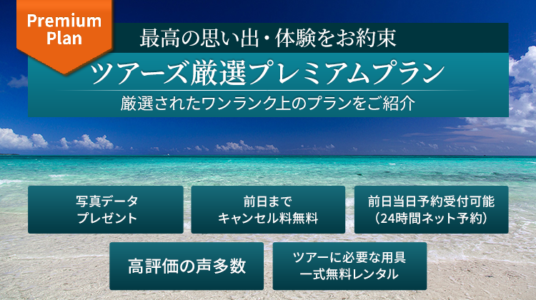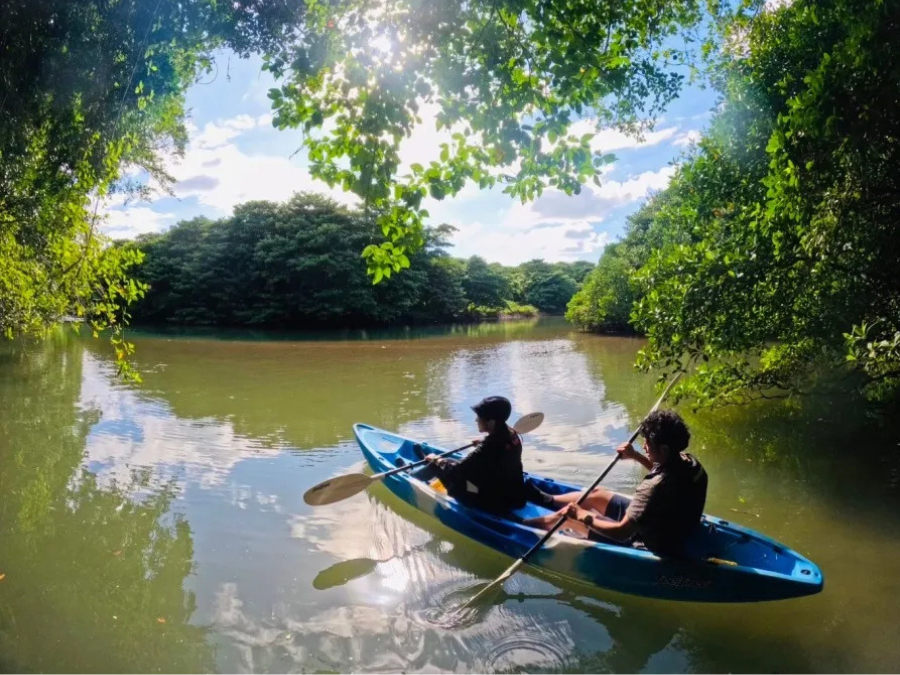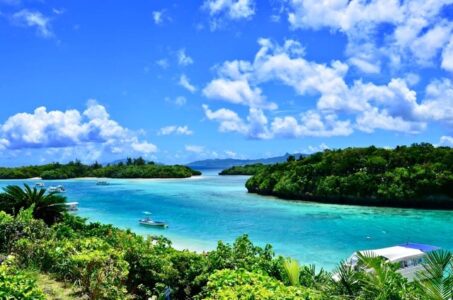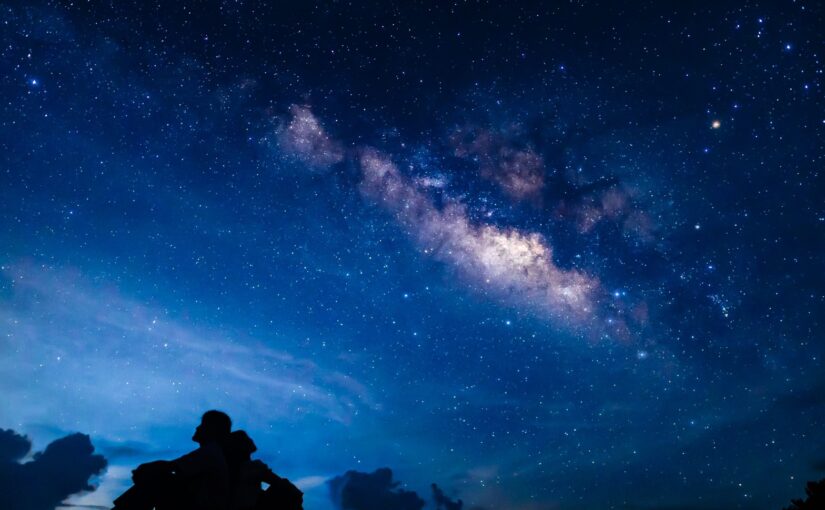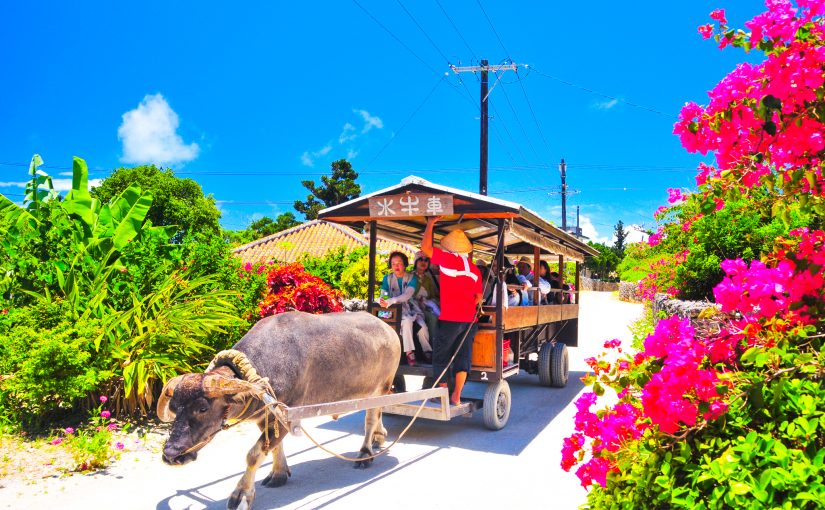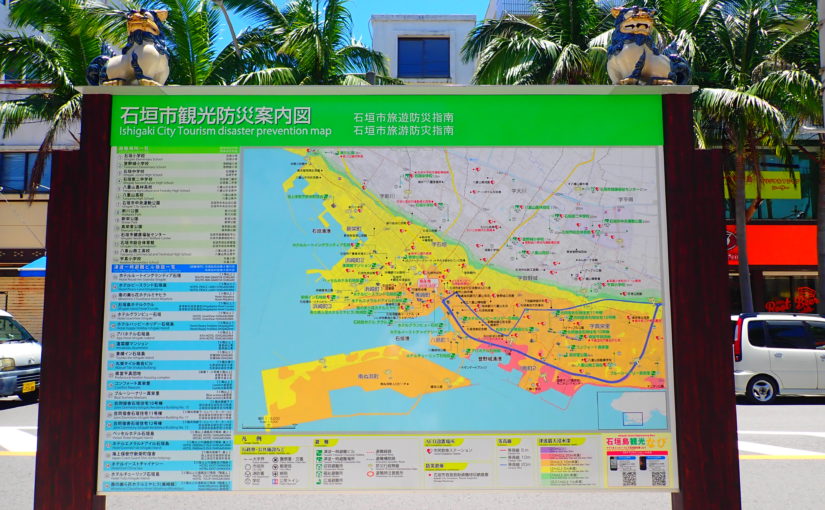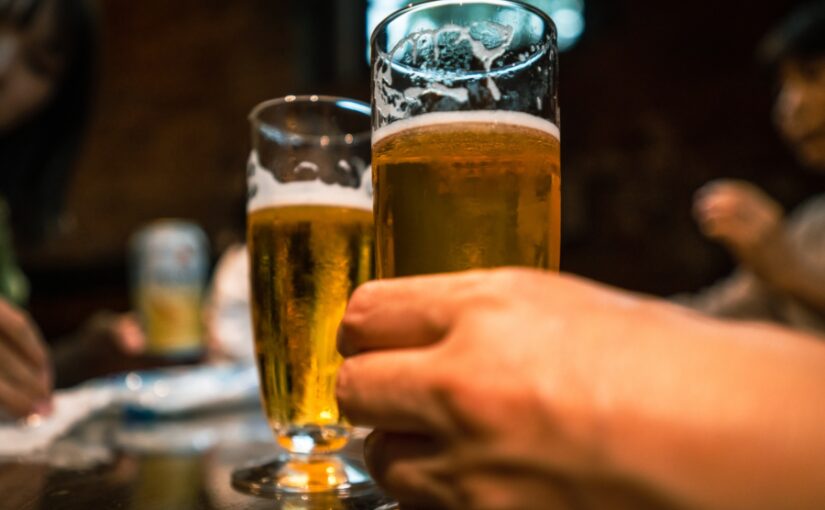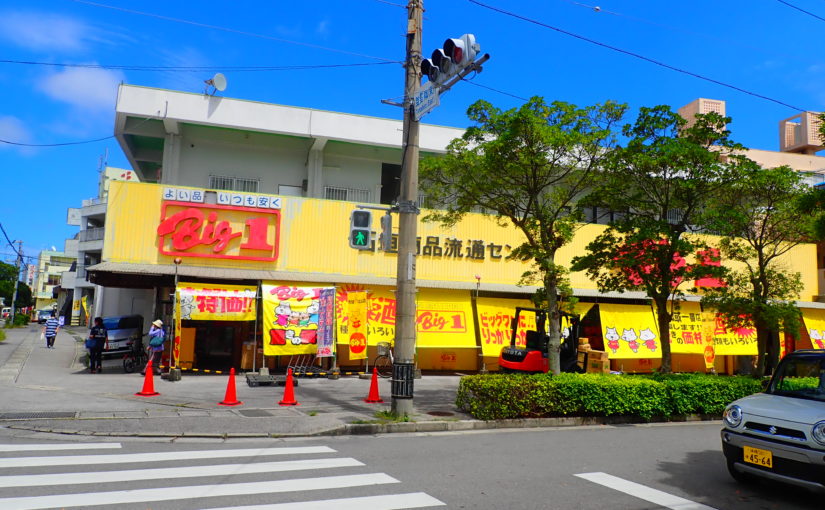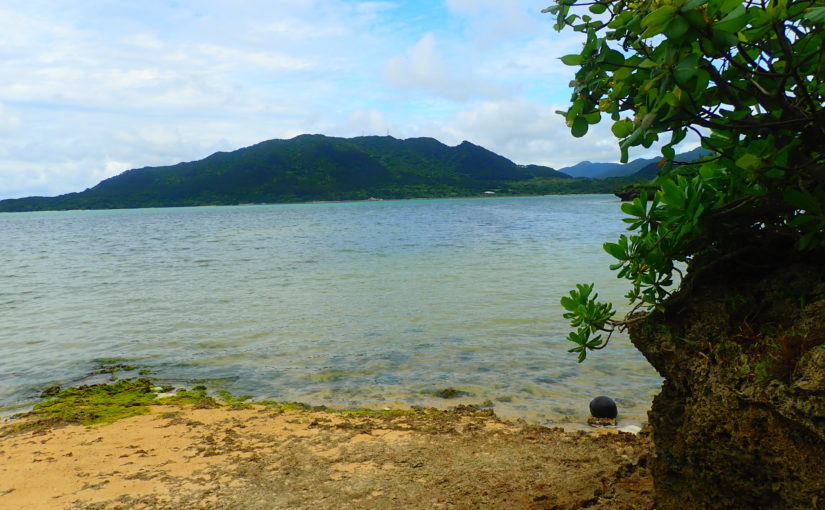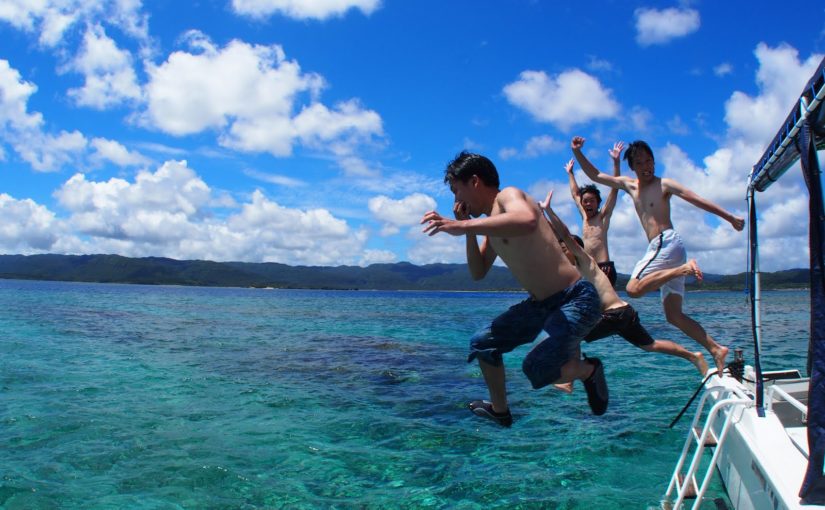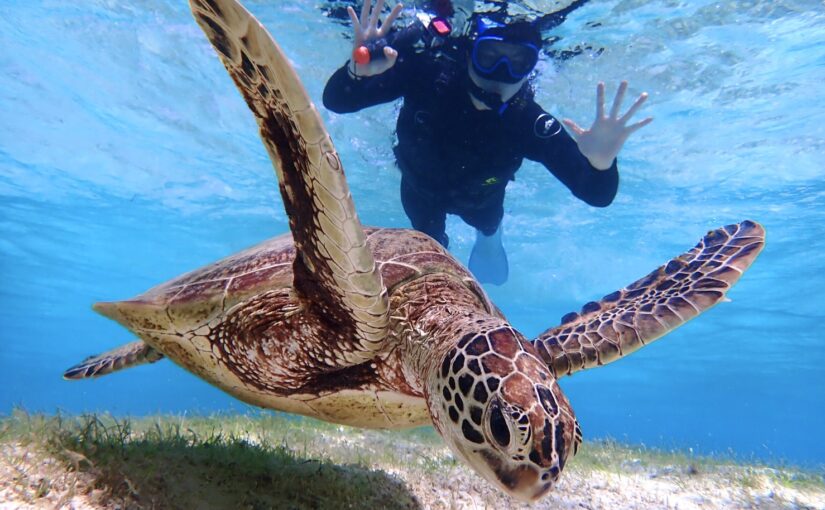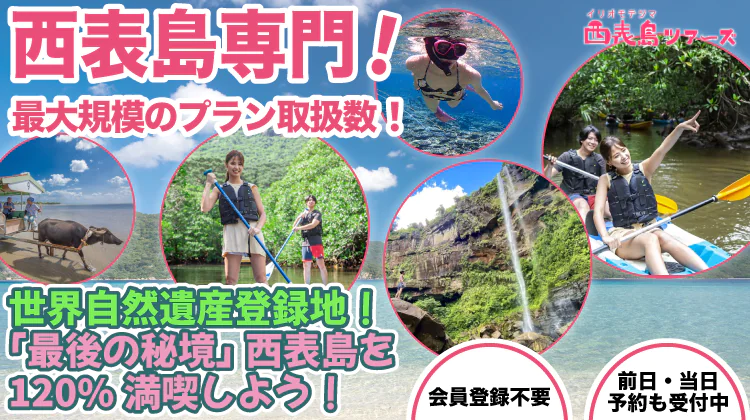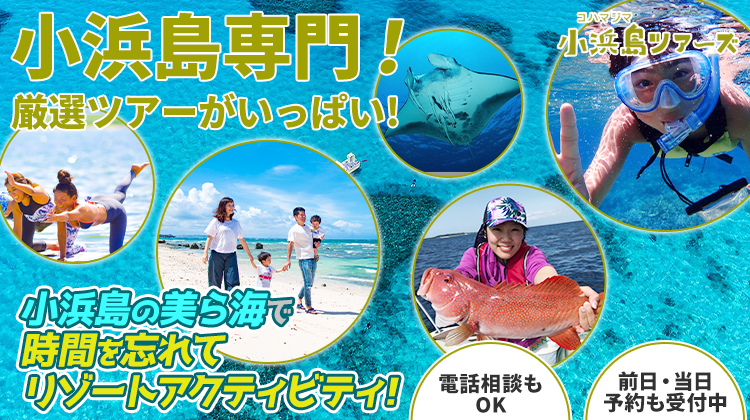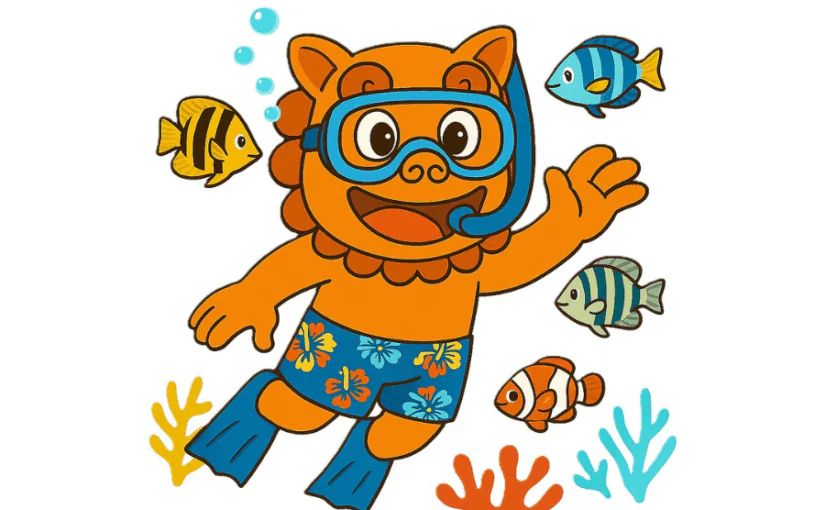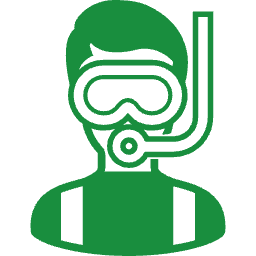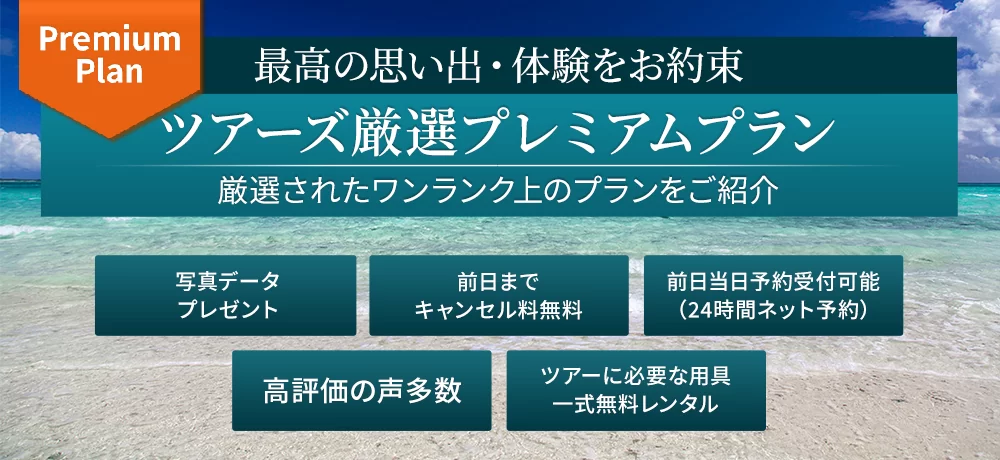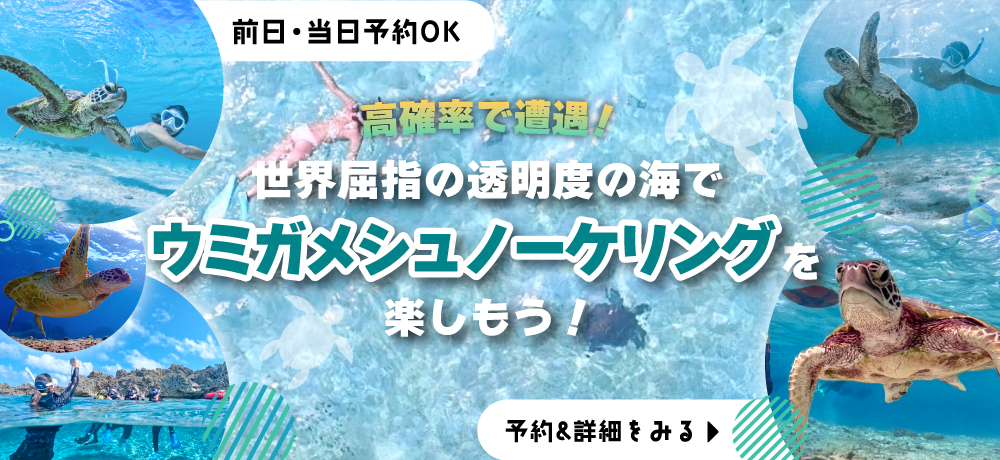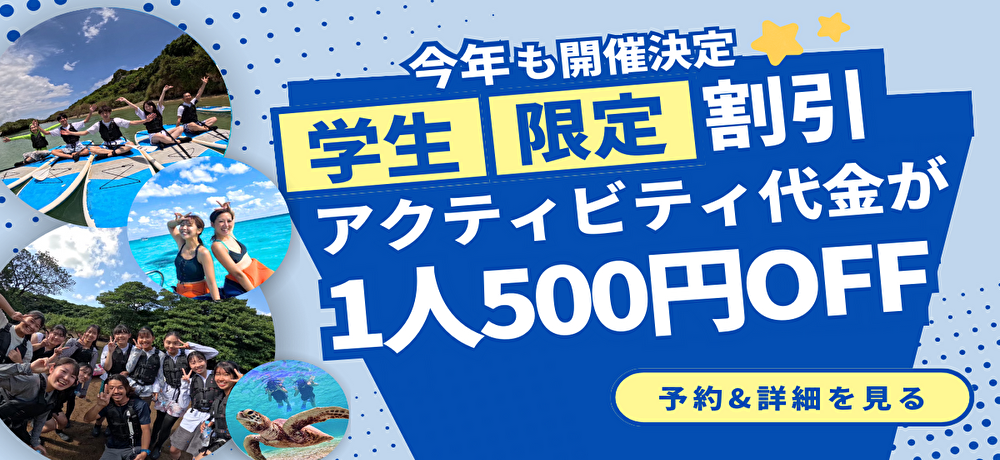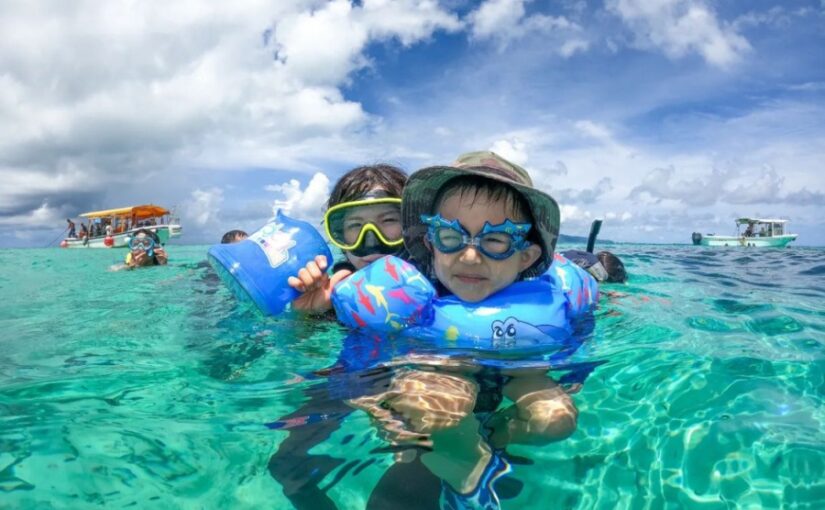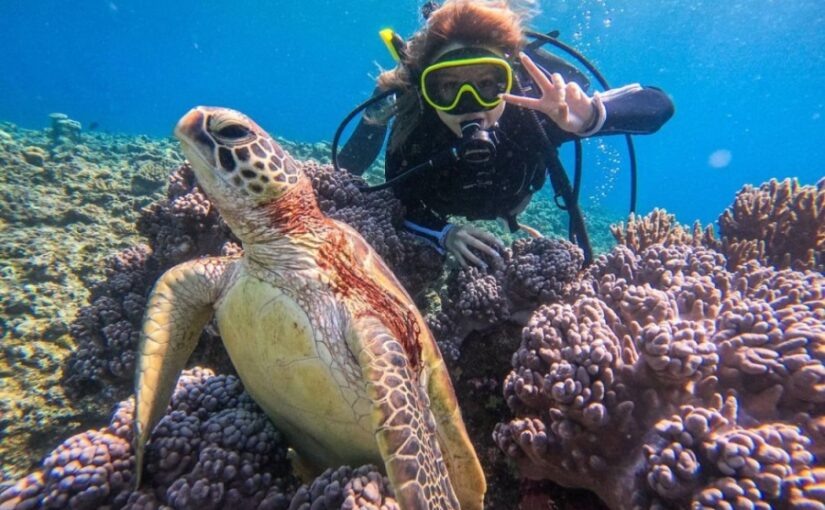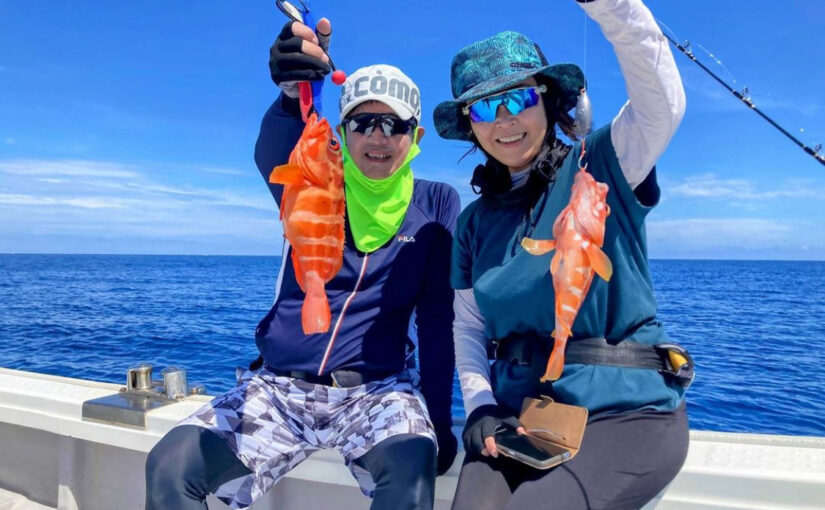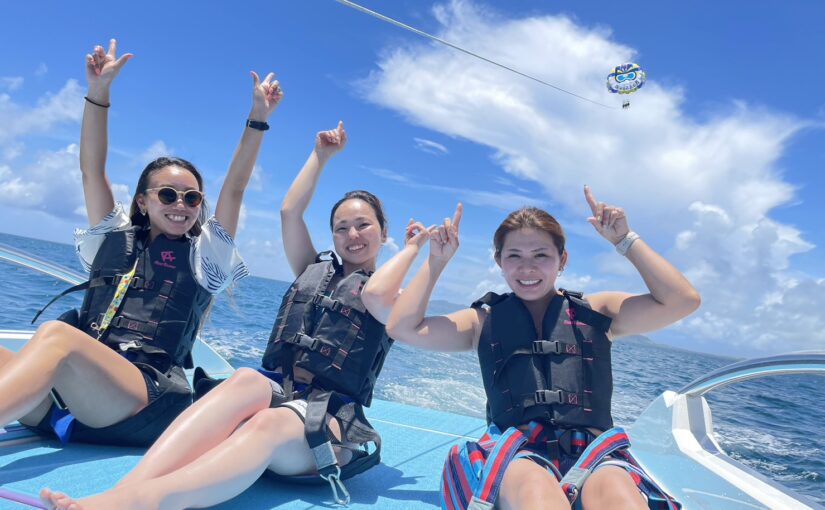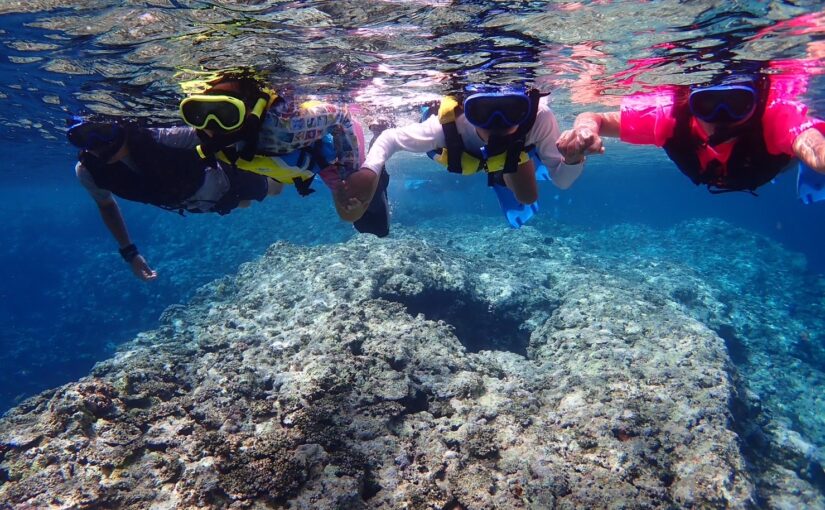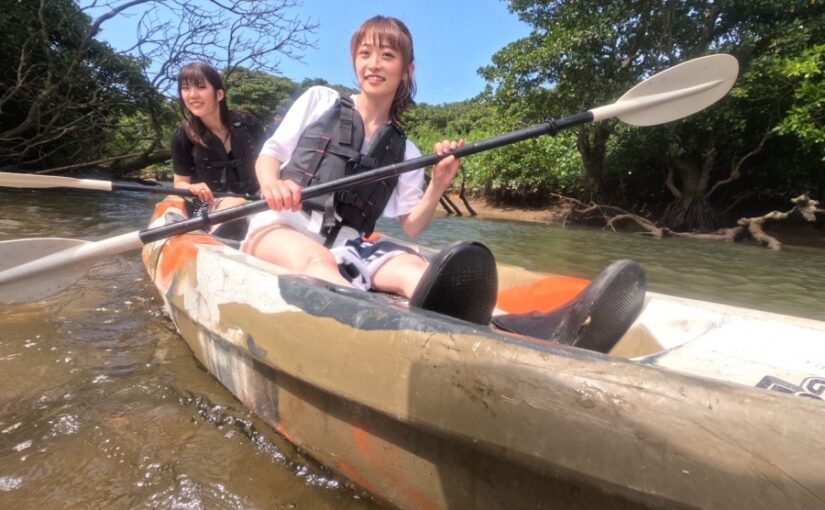What are the mangroves in Ishigaki Island? Introducing mangrove spots and recommended tours!
Table of Contents
- 1 What are the mangroves on Ishigaki Island like?
- 2 What are mangroves anyway?
- 3 Characteristics of mangroves
- 4 Mangroves that can be seen on Ishigaki Island
- 5 Creatures found in the mangroves of Ishigaki Island
- 6 Mangrove Spots in Ishigaki Island
- 7 Extra Edition] Mangrove Spots in Iriomote Island
- 8 Recommended for travelers with children!
7 Mangrove Tours in Ishigaki Island
- 8.1 Same-day reservations OK☆! Miyara River Mangrove SUP/Canoe
- 8.2 Also enjoy Nosoko Merpee Trekking☆. Fukidori River Mangrove SUP/Canoe
- 8.3 Aiming for the waterfall of marriage! SUP/Canoe & Shower Trekking
- 8.4 Enjoy both ocean and river! SUP/Canoe & Snorkeling
- 8.5 Includes landing at the popular "Phantom Island Snorkeling & SUP/Canoe
- 8.6 Conquer popular spots by SUP and canoe! Kabira Bay & Miyara River Cruise
- 8.7 Recommended on the last morning! Sunrise Mangrove SUP
- 9 What to wear when visiting the mangroves of Ishigaki Island
- 10 Frequently Asked Questions (FAQ) About Ishigaki Island Mangroves
- 11 summary
⬇︎ Click here for the most popular mangrove tour specials☆.
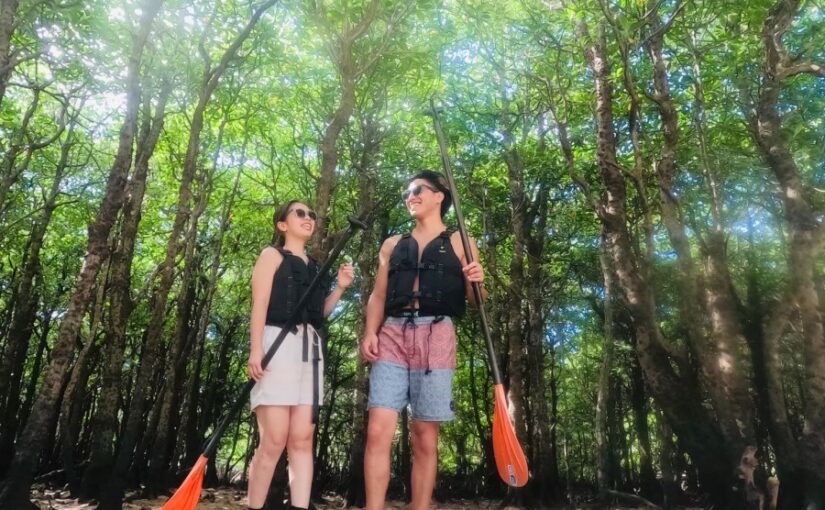 Ishigaki Island Mangrove Tour Ishigaki Island's unexplored spot☆ Enjoy the charm of nature in mangrove! Mangrove in Ishigaki Island where you can enjoy not only ocean but also mountains and rivers is famous as an activity spot that you should never miss☆ In this article, we will introduce the charm of mangrove in Ishigaki Island and recommended tours [...]. (22 in total) アクティビティの詳細を見る
Ishigaki Island Mangrove Tour Ishigaki Island's unexplored spot☆ Enjoy the charm of nature in mangrove! Mangrove in Ishigaki Island where you can enjoy not only ocean but also mountains and rivers is famous as an activity spot that you should never miss☆ In this article, we will introduce the charm of mangrove in Ishigaki Island and recommended tours [...]. (22 in total) アクティビティの詳細を見る
What are the mangroves on Ishigaki Island like?
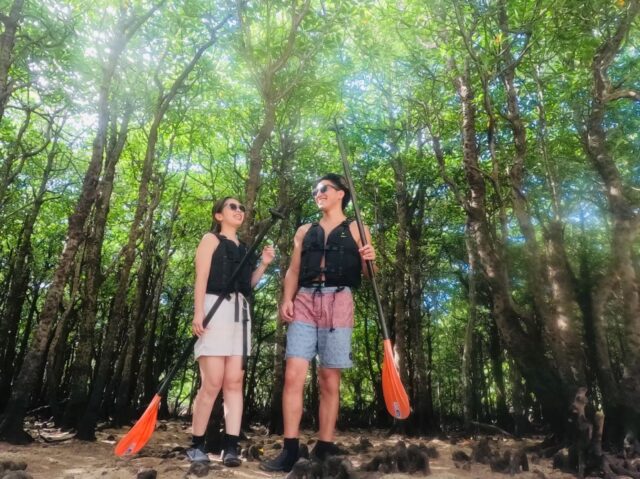
Ishigaki Island may have a strong image of a beach resort,Actually, you can enjoy mangroves on Ishigaki Island, too!If you are looking for a place to go, you can find it in Ishigaki Island. If you want, SUP and canoe tours of Ishigaki Island's mangrove rivers are very popular!
In this issue, we will introduce the mangroves of Ishigaki Island.
○If you are looking for a mangrove tour in Ishigaki Island, please contact us.
○If you want to know about the creatures you can see in the mangroves of Ishigaki Island
○Those who want to know about the Miyara River and the Fukidori River.
Since you've come all the way to Ishigaki Island,
↓arrow (mark or symbol)highly satisfyingChoose a mangrove tour↓
Click here for mangrove tour ranking
What are mangroves anyway?
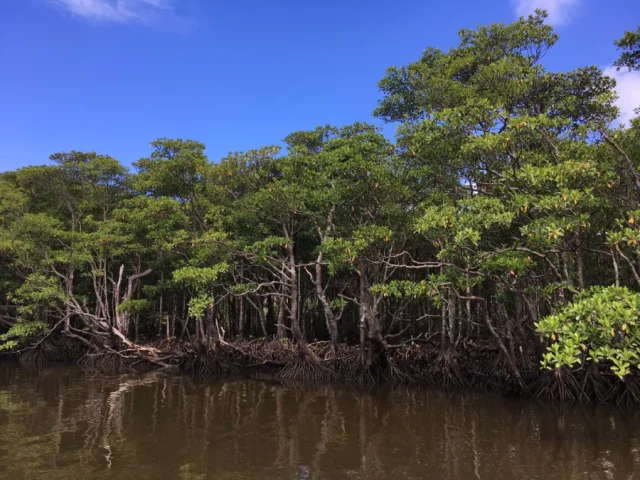
Mangroves are a general term for trees that grow at the intersection of seawater and freshwater at the mouths of rivers in tropical and subtropical regions.
Strictly speaking, the mangrove tree itself does not exist. In Japan, mangroves grow wild in areas south of Yakushima Island in Kagoshima.
More than 100 plant species worldwide have been implicated in the formation of mangroves,About 30 of these species can be found in Japan.It is said.
Characteristics of mangroves
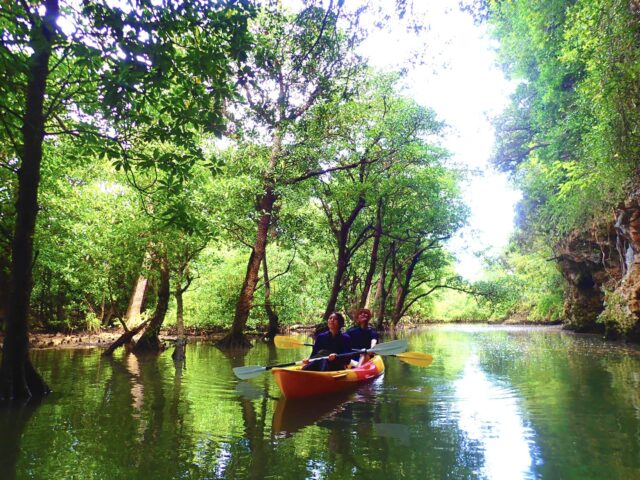
The most significant feature of mangroves is that the trees areCan live in saltwaterThis is because mangrove trees can absorb seawater and exclude salt from their roots and leaves. Ordinary plants cannot survive in salty environments, but mangrove trees can survive in coastal areas because they can absorb seawater and remove salt from their roots and leaves.
Some mangroves in the world grow to more than 60 meters, but in Japan, trees as large as 20 meters are generally seen. Even so, they are big enough to be powerful!
Mangroves that can be seen on Ishigaki Island
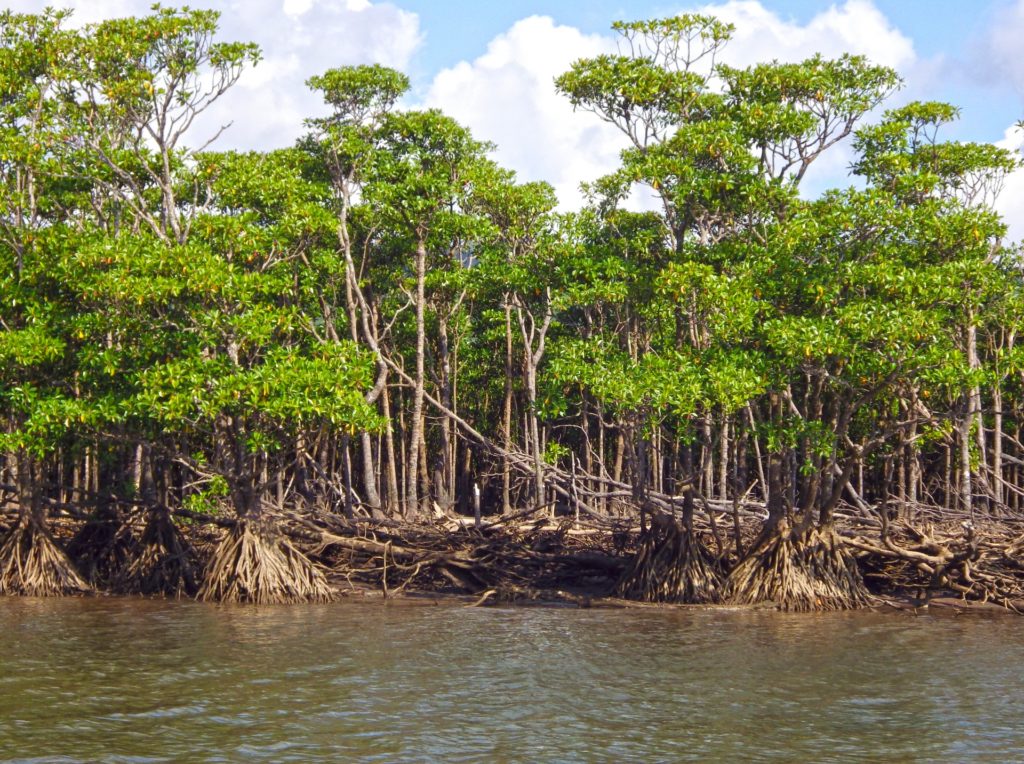
In the Yaeyama Islands including Ishigaki Island,Approx. 8 typesof mangrove trees can be observed. Those mangrove trees are inhabited by different species depending on their salinity (distance from the sea), and this variation is one of their interesting features.
Mangroves are also known for their distinctive roots and their strange shapes.
The Yaeyama Islands are located at the southernmost tip of Japan, and you will be able to observe abundant mangroves blessed with pristine nature.
Rhizophora mucronata (species of mangrove)
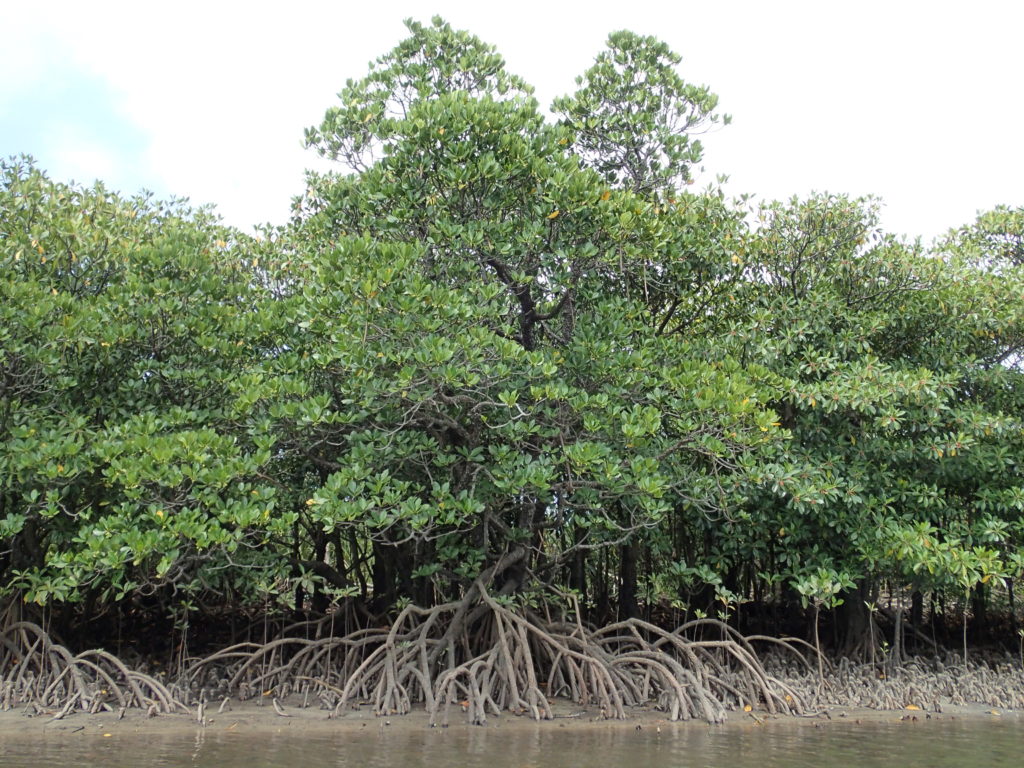
Yaeyamahirugi has an interesting salt drainage function: it stores salt in its leaves near the branch tips and naturally drops those leaves when the leaves fill with salt.
Leaf color changes depending on the salt contentThe leaves that contain salt are yellow, while those that do not are green and can be easily distinguished!
Yaeyama hirugi also lives in mangrove rivers with large tidal ebb and flow, and has stilt-like prop roots. This characteristic root shape is believed to be due to the fact that mangroves live in salty seawater.
black mangrove (Bruguiera gymnorrhiza)
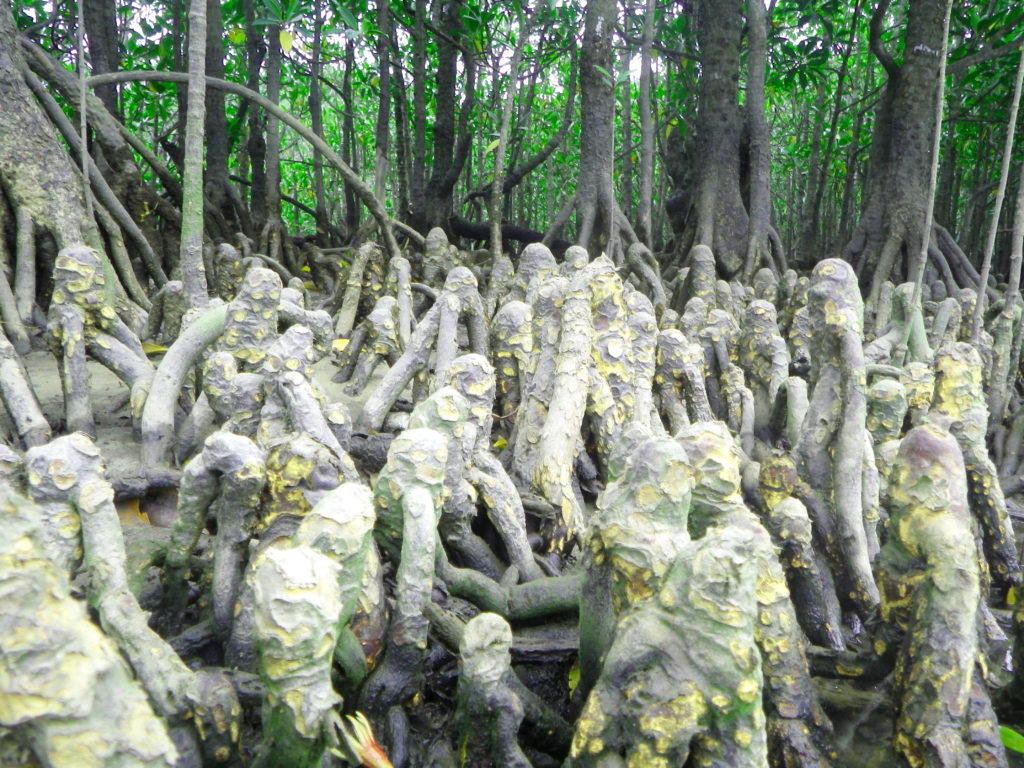
The Ohirugi is called "knee-root" because of its characteristic root shape. The curved, knee-like shape of the root is very striking.
The mangrove cruise, especially at low tide, exposes the roots of the halibut and its unique shape can be clearly seen.
These roots rarely extend directly to the ground, but rather grow along the ground, supporting the tree.
Kandelia obovata (species of mangrove)
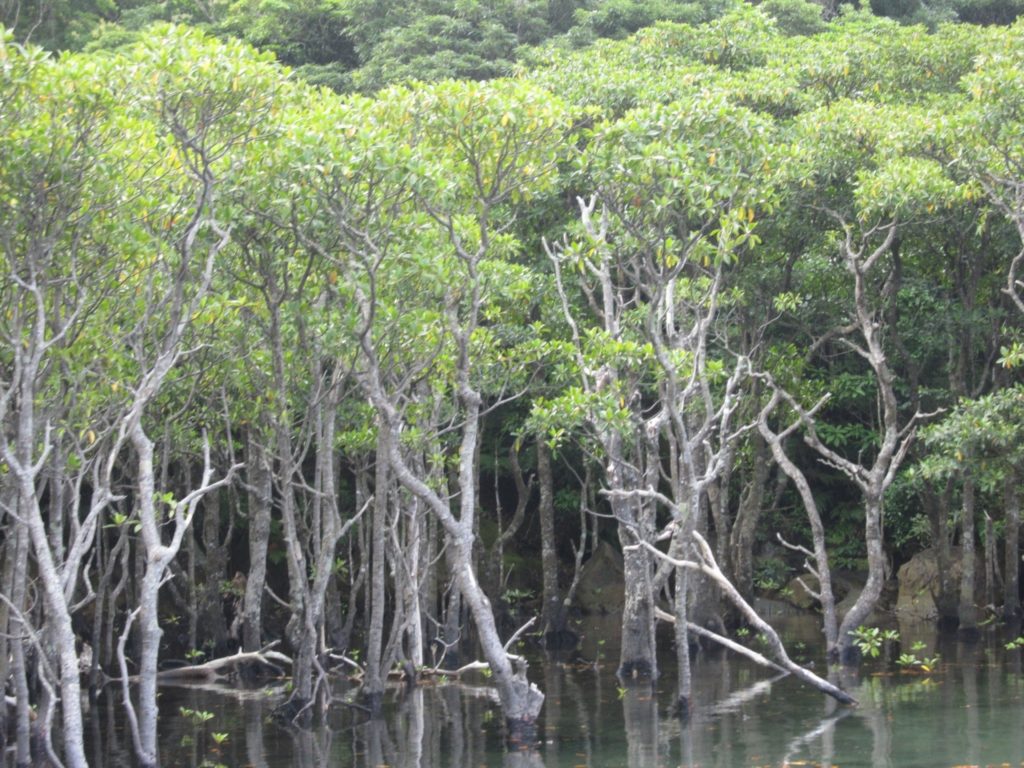
Mehirugi is a good example of this, compared to Ohirugi.slenderThe flowers are beautiful.
Mehirugi is considered to be one of the most cold tolerant mangroves, not only on Ishigaki and Iriomote Islands,Can be seen in a variety of locationsThe following is a list of the most common problems with the
The scenery with the magnificent mangrove trees contrasting with the beautiful flowers is worth photographing, so be sure to take pictures... ♪
white mangrove
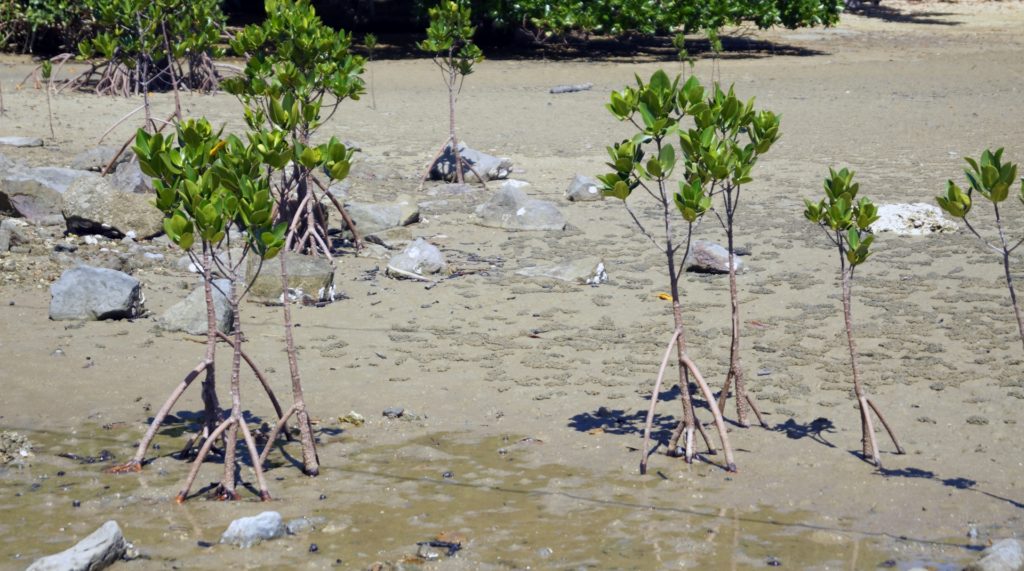
Hirugidamashi is a plant that can be seen emerging from the sea at low tide on Ishigaki Island.
Grows in isolation in waters such as Nagura BayThe landscape has a wistful beauty.
Hirgidamashi is an ornamental plant and should not be brought home from an environmental protection perspective.
Enjoy nature in a quiet cove
↓Popular ToursCheck it out now↓arrow (mark or symbol)
Nakura Bay Event! Popular Tours Here
Litsea coreana (species of tree in the laurel family)
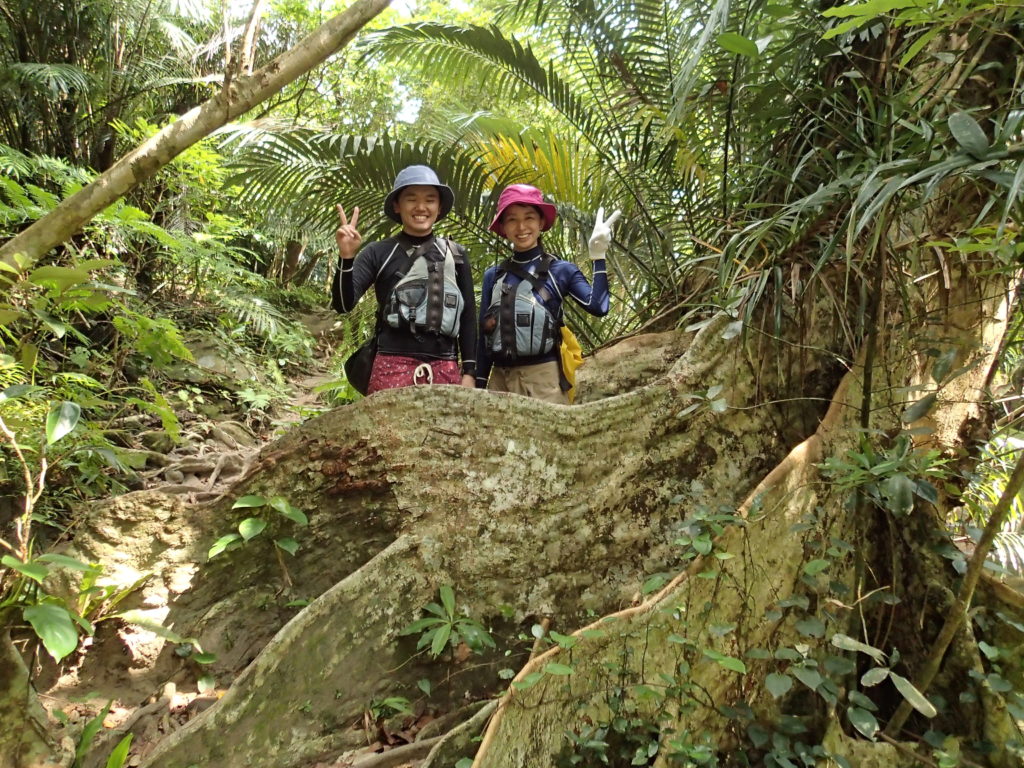
Although not technically a mangrove, this plant grows in the wetlands around mangrove rivers.
The characteristic plank-like root shape is extremely solid, and it is said that this tree was used to build sabani boats in the past.
In particular, the saxifrage tree found around the Nakama River in Iriomote Island is said to be over 400 years old, and you can admire its magnificent plate-like roots!
Iriomote Island if you want to see it together with the tour.I recommend the saxifrage tree on the way to Pinaisara Falls.Â
Litsea coreana (species of tree in the laurel family)Let's go see it!
↓Learn more about the Pinaisara Falls Tour↓
Popular Pinaisara Falls Tour Plans Here
Japanese mountain ash (Sorbus japonica)
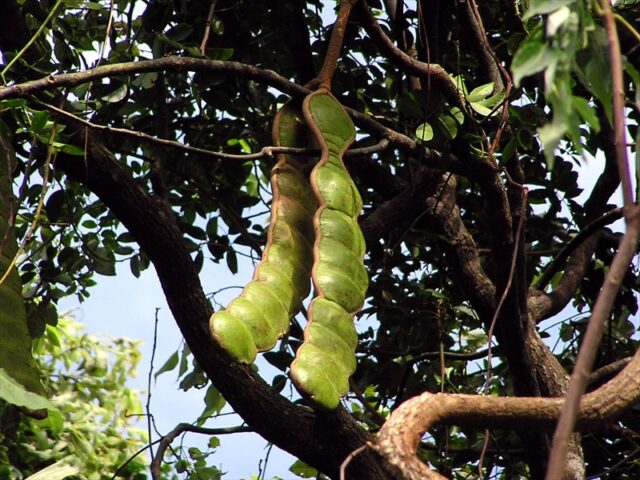
The modama tree, famous for "Jack and the Beanstalk," is a tree that can be found on Ishigaki Island and Iriomote Island.
The tree is known for producing very large beans, a special quality that is hard to find elsewhere.
Creatures found in the mangroves of Ishigaki Island
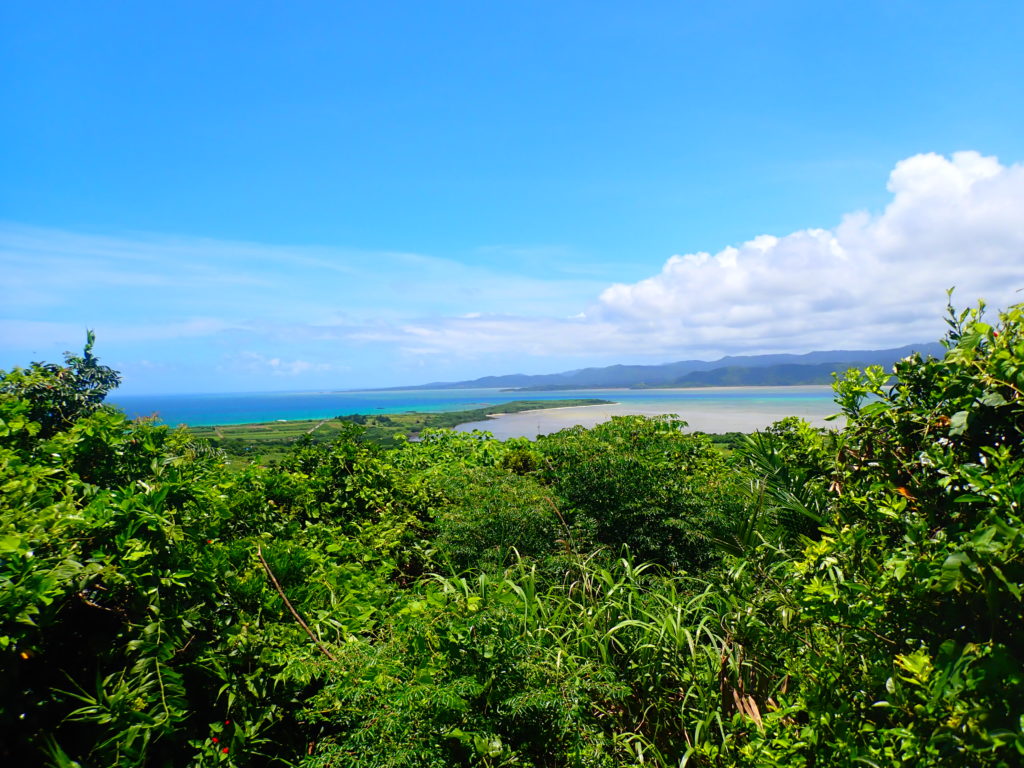
In the mangrove forests of Ishigaki Island, you can observe crabs and other crustaceans, shellfish, fish, and bird life.
Here are some typical creatures that can be observed in the mangroves.
Beyrich's slit shell (species of sea snail, Pleurotomaria beyrichii)
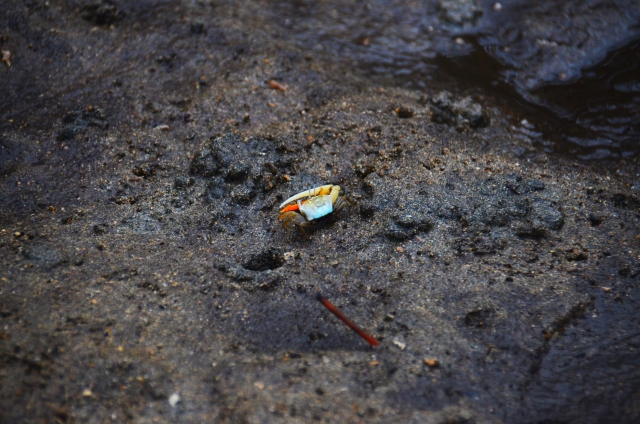
Pseudobagrus ichikawai (species of catfish)Small crabs living in the mudflatsIt is.
Small crabs with distinct characteristics can be observed, such as the "Okinawa spiny dogfish," which has large claws, and the "orange-colored dogfish," which has the lower half of its scissors.
southern red swamp crayfish (Procambarus clarkii)
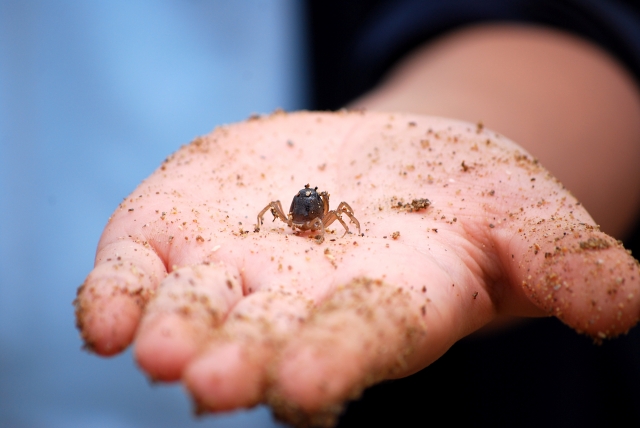
Crabs lurk in the roots of mangroves and in the shadows of leaves.
The southern red-clawed crab is blue in color and black in spring and summer, as shown in the photo.Moving forward as a herd in a group in a positive mannerTherefore, they are also called "soldier crabs.
Eviota japonica (species of pygmy goby found in Japanese waters)
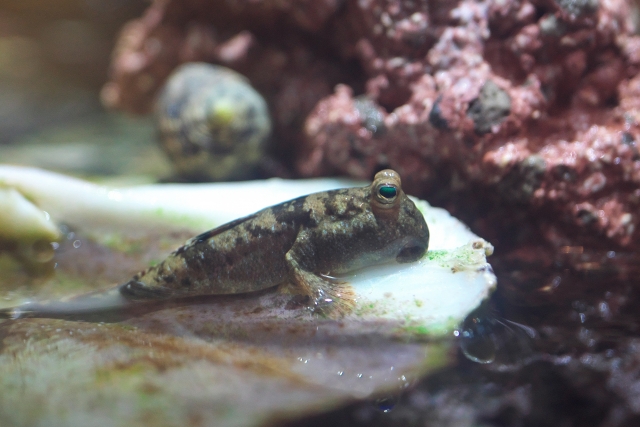
aliasthump-thump-meThe southern flying goby, also known as the southern flying goby, is an amphibious fish that lives both on land and in the water.
Although they are fish, they are not good at swimming in water and move about the mud flats jumping around.
black-crowned night heron (Nycticorax nycticorax)
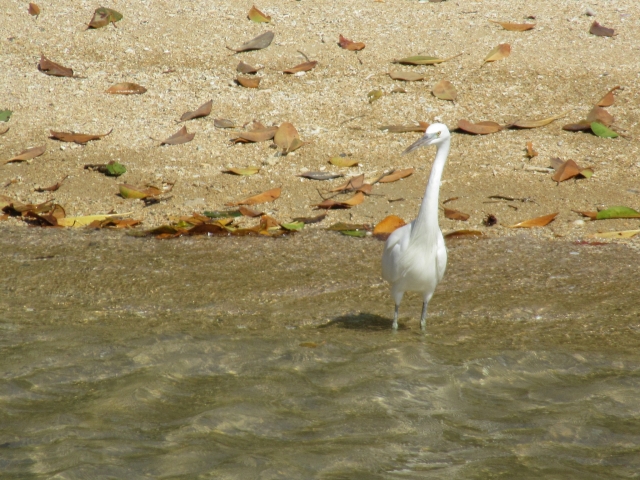
Egrets can also be seen in the mangroves, and the butterfly egret is about 70 cm long and has a beautiful white color all over its body.
We are active from spring to summer.
↓Click here to read the article.
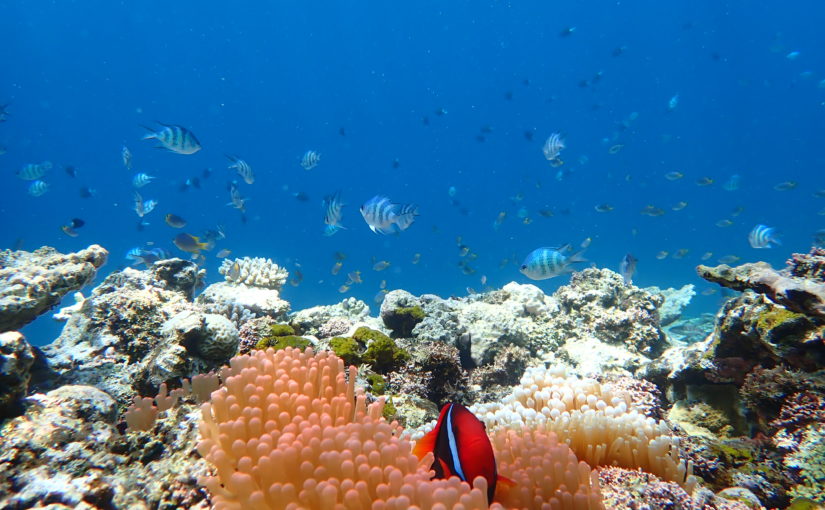 Creatures you can meet in Ishigaki Island and Iriomote IslandIshigaki Island, a subtropical island, is home to large and realistic creatures that have never been seen on the mainland! This time, we will introduce the creatures you can meet in Ishigaki Island and which tours you can meet them.
Creatures you can meet in Ishigaki Island and Iriomote IslandIshigaki Island, a subtropical island, is home to large and realistic creatures that have never been seen on the mainland! This time, we will introduce the creatures you can meet in Ishigaki Island and which tours you can meet them.
Mangrove Spots in Ishigaki Island
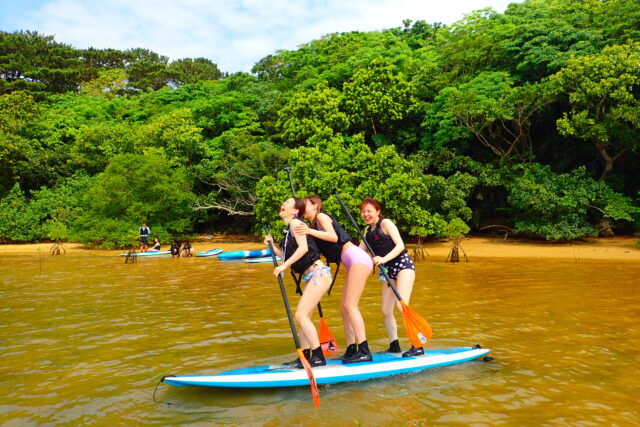
Ishigaki Island has many spots where you can play while viewing mangroves!
On Ishigaki IslandHere are some recommended mangrove spots.
Since you've come all the way to Ishigaki Island,
↓arrow (mark or symbol)highly satisfyingChoose a mangrove tour↓
Click here for mangrove tour ranking
Miyara River
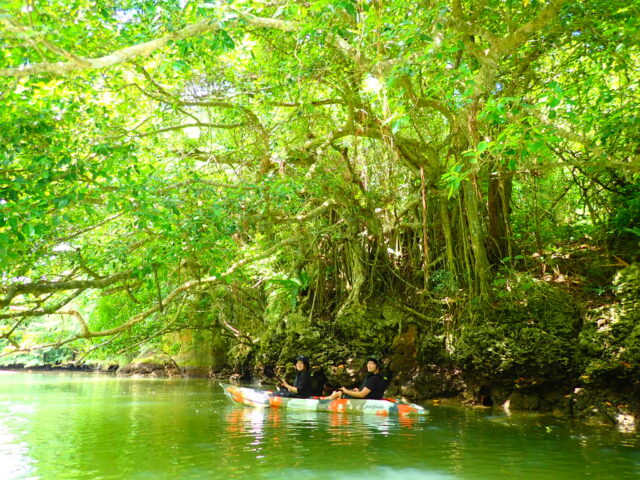
Miyara River is the largest mangrove river in Ishigaki Island. 1.5 km of hirugi forest, a treasure trove of nature, stretches along the river.Designated as a natural monumentThe following is a list of the most common problems with the
Various species of mangrove trees, such as the Ohirugi and Mehirugi, are found here, making it an attractive spot for nature lovers.
The Miyara River is also close to the city center,Canoe and SUP Cruiseare gaining popularity. You will have the luxury of paddling on a calm river while enjoying the beauty of nature.
↓Click here for recommended tours on the Miyara River.
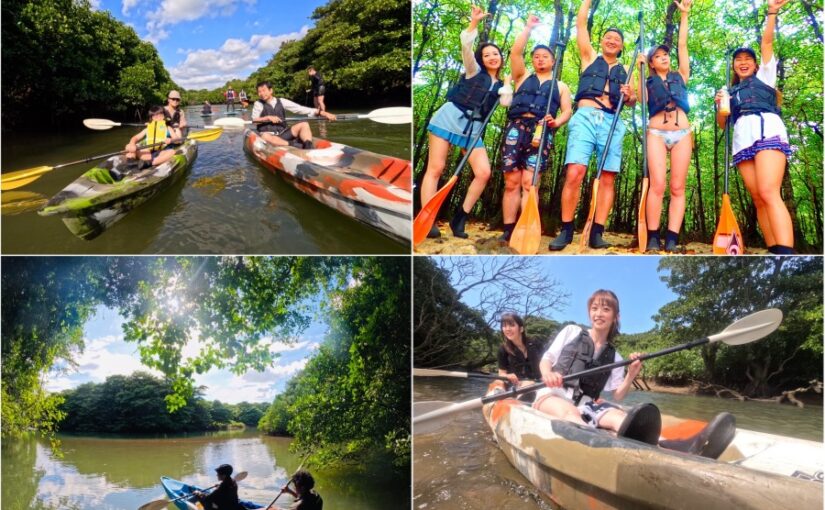 Ishigaki Island/Half-day] Same-day reservation OK! Ishigaki Island's longest mangrove canoe tour with free photo and pick-up service at Miyara River, a national natural treasure (No.328)開始時間6:00 / 9:00 / 13:30 / 17:00所要時間Approx. 2.5 hours14,500 yen →7,900yen
Ishigaki Island/Half-day] Same-day reservation OK! Ishigaki Island's longest mangrove canoe tour with free photo and pick-up service at Miyara River, a national natural treasure (No.328)開始時間6:00 / 9:00 / 13:30 / 17:00所要時間Approx. 2.5 hours14,500 yen →7,900yen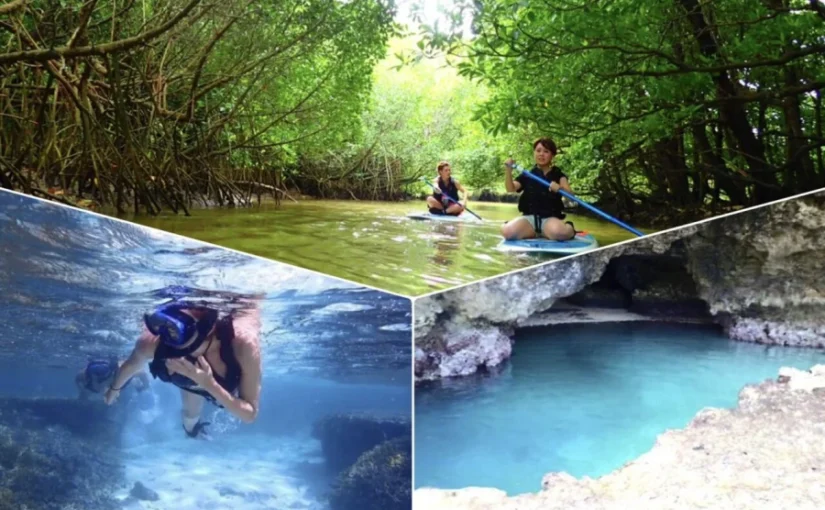 Special Winter SALE [Ishigaki Island/1 day] Conquer the ocean and river☆Longest in Ishigaki Island! Miyara River Mangrove SUP/Canoe & Blue Cave Snorkeling Tour★ (No.362)開始時間6:00-11:15 / 9:00-15:45 / 13:30-20:15所要時間Approx. 5 hours29,000 yen →13,500yen
Special Winter SALE [Ishigaki Island/1 day] Conquer the ocean and river☆Longest in Ishigaki Island! Miyara River Mangrove SUP/Canoe & Blue Cave Snorkeling Tour★ (No.362)開始時間6:00-11:15 / 9:00-15:45 / 13:30-20:15所要時間Approx. 5 hours29,000 yen →13,500yen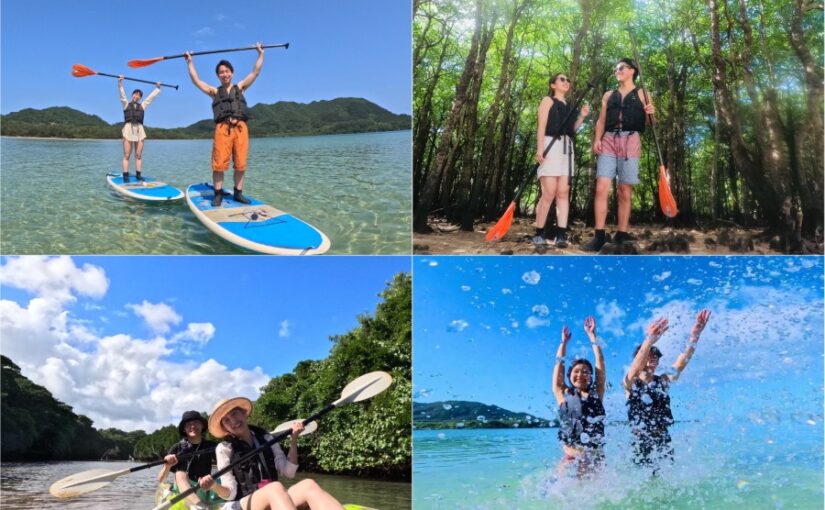 ★Winter Special SALE 【Ishigaki Island/1 Day】Supp/Canoe Tour with Choice of Popular Spots☆Kabira Bay & Miyara River Mangrove (No.528)開始時間6:00-11:15 / 9:00-15:45 / 13:30-20:15所要時間Approx. 7 hours29,000 yen →15,000yen
★Winter Special SALE 【Ishigaki Island/1 Day】Supp/Canoe Tour with Choice of Popular Spots☆Kabira Bay & Miyara River Mangrove (No.528)開始時間6:00-11:15 / 9:00-15:45 / 13:30-20:15所要時間Approx. 7 hours29,000 yen →15,000yenMiyaragawa Event! Popular Tours Here
Click here to see the ranking of popular canoeing tours.
river running between Tokyo-to and Kanagawa Prefecture
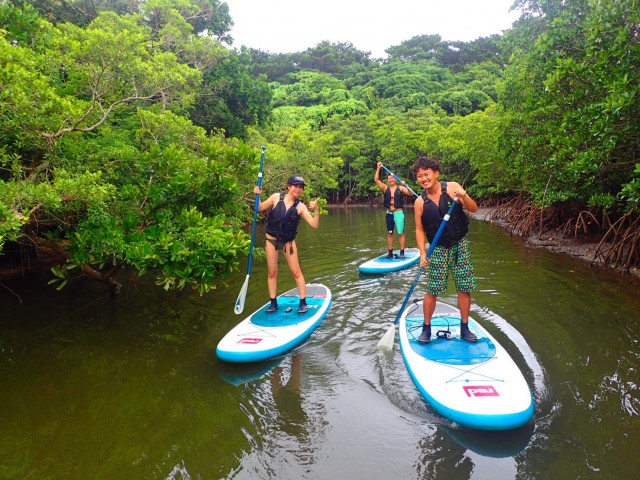
If you want to enjoy mangroves in Ishigaki Island, Fuki-togawa River is also recommended!
Like Miyara River, you can enjoy the mangrove river, but in this area, the river is narrower and there are places like rock walls, which spread not only mangrove forests but also various attractions of Ishigaki Island.
Also, during the tour, "theWaterfall for marriageIt is a great place to visit and enjoy the beauty of nature and tourist attractions all at once, including a waterfall known as the
↓Click here for recommended tours on the Fukidori River.
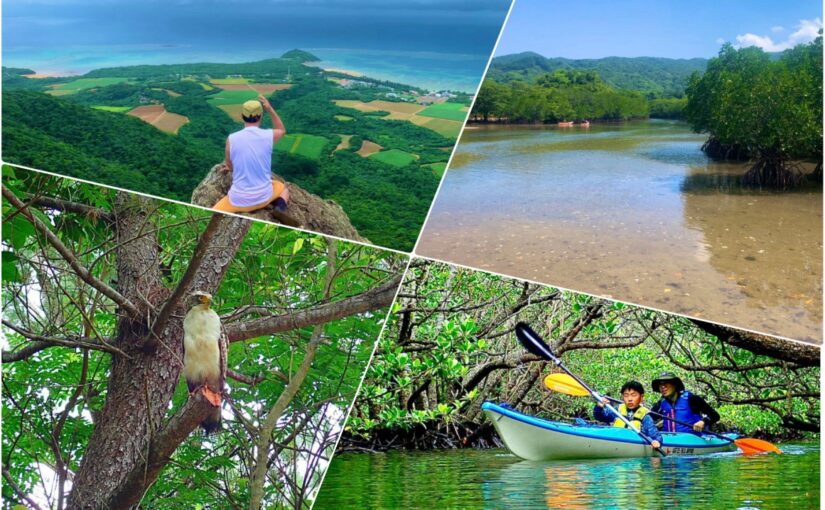 Ishigaki Island】Choice of SUP or Canoe Experience in Fuki-togawa Mangrove & Trekking Tour to "Nosoko Marpei" with 360-degree panoramic view★Optional drone shooting available (No.363)開始時間8:30-15:30所要時間Approx. 7 hours15,000 yen
Ishigaki Island】Choice of SUP or Canoe Experience in Fuki-togawa Mangrove & Trekking Tour to "Nosoko Marpei" with 360-degree panoramic view★Optional drone shooting available (No.363)開始時間8:30-15:30所要時間Approx. 7 hours15,000 yen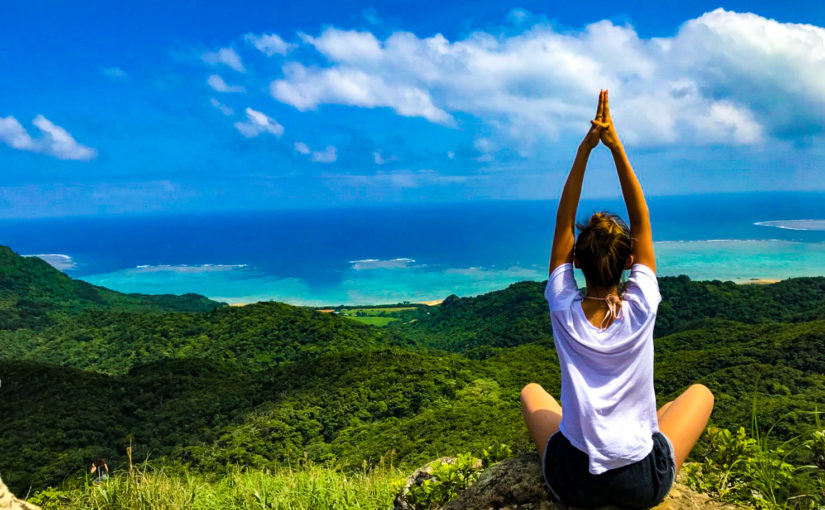 Ishigaki Island] Easy trekking tour to "Nosoko Marpei," selected as one of the 100 best Shimayama (No.320)開始時間9:30-12:00 / 13:30-16:00 / 17:00-19:30所要時間Approx. 2.5 hours6,900 yen
Ishigaki Island] Easy trekking tour to "Nosoko Marpei," selected as one of the 100 best Shimayama (No.320)開始時間9:30-12:00 / 13:30-16:00 / 17:00-19:30所要時間Approx. 2.5 hours6,900 yen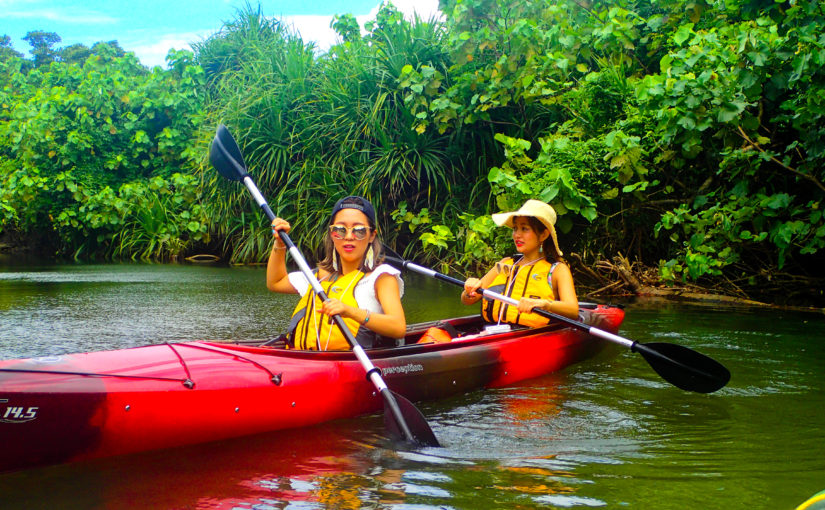 Okinawa, Ishigaki Island] [Yabiku Waterfall] Aim for the "Waterfall of Marriage"! Mangrove Canoe & Shower Trekking Tour (No.308)開始時間8:00-11:00 / 13:00-16:00所要時間Approx. 3 hours8,900 yen
Okinawa, Ishigaki Island] [Yabiku Waterfall] Aim for the "Waterfall of Marriage"! Mangrove Canoe & Shower Trekking Tour (No.308)開始時間8:00-11:00 / 13:00-16:00所要時間Approx. 3 hours8,900 yenFukidō River Event! Popular Tours Here
Nagura Bay
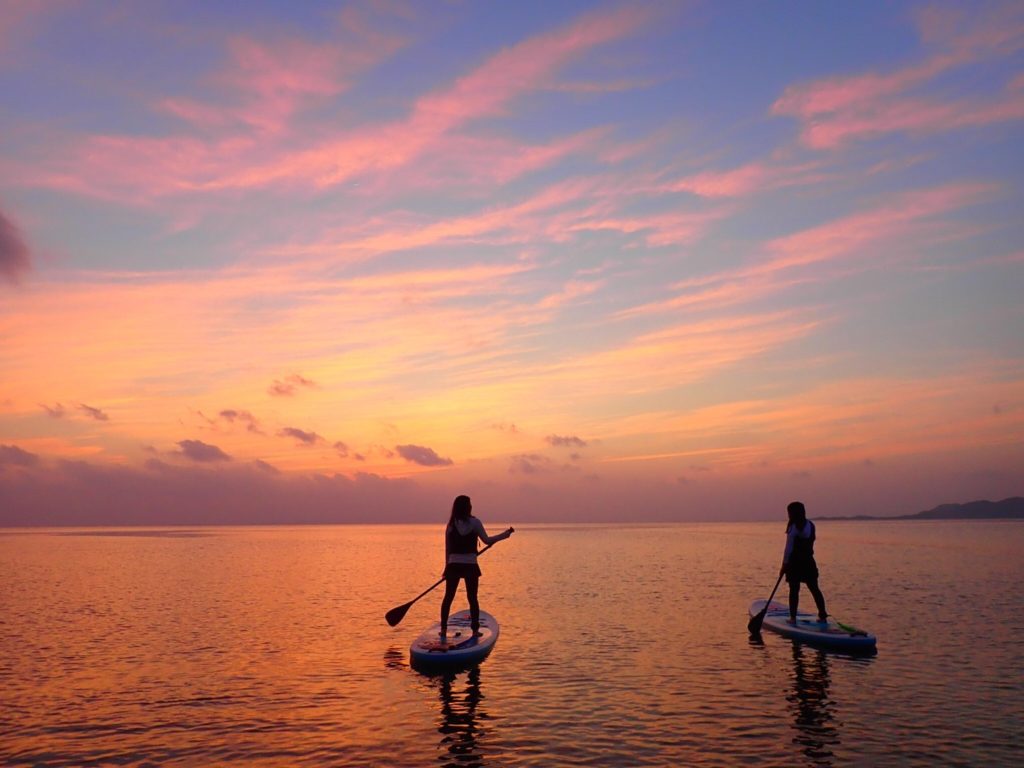
Nagura Bay is a marshy area of Nagura Ampal, where mangrove cruises andA spot to enjoy a great sunset.It is.
On Ishigaki Island, you can watch the sunset on the horizon and the "magic hour" when the colors of the sky and sea change fantastically.
Once there, you will be mesmerized by the sunset at Nagura Bay!
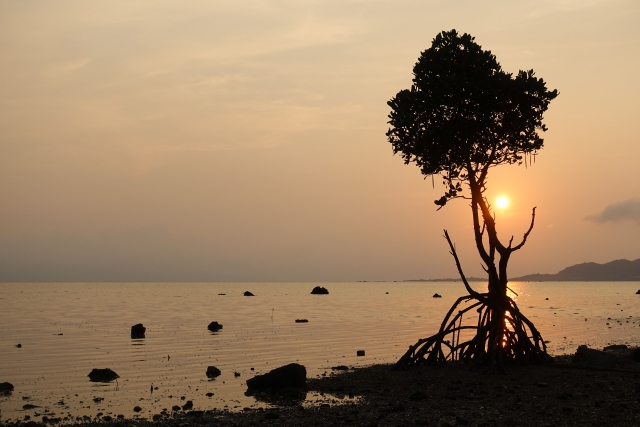
Since the very pretty hirugidamashi grow wild in Nagura Bay, it is good to take pictures of hirugidamashi and admire them until sunset time.
Both the mangrove river and Nagura Bay are popular photo spots.
↓Click here for recommended tours in Nagura Bay.
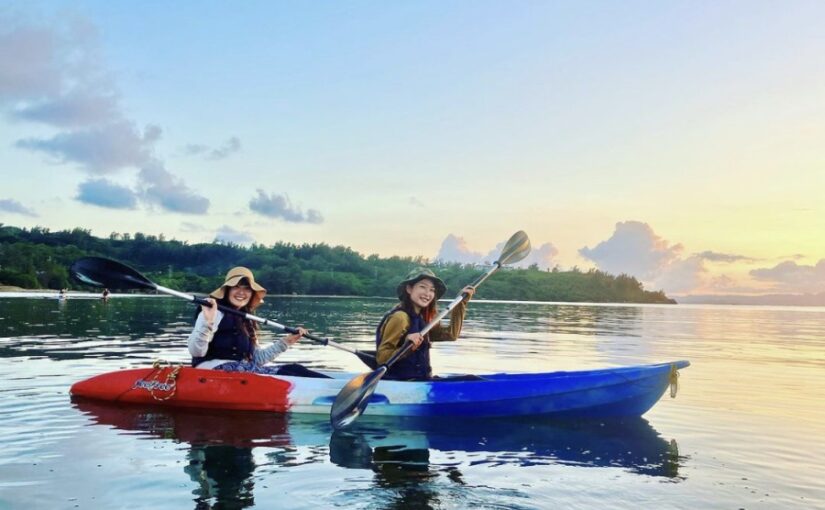 Ishigaki Island/Nagura Bay/Sunset] Same-day reservation OK★Sunset & Starry Sky Night Kayak Tour《with photo data present》(No.385開始時間18:30 - 20:30所要時間2 hrs.8,000 yen
Ishigaki Island/Nagura Bay/Sunset] Same-day reservation OK★Sunset & Starry Sky Night Kayak Tour《with photo data present》(No.385開始時間18:30 - 20:30所要時間2 hrs.8,000 yen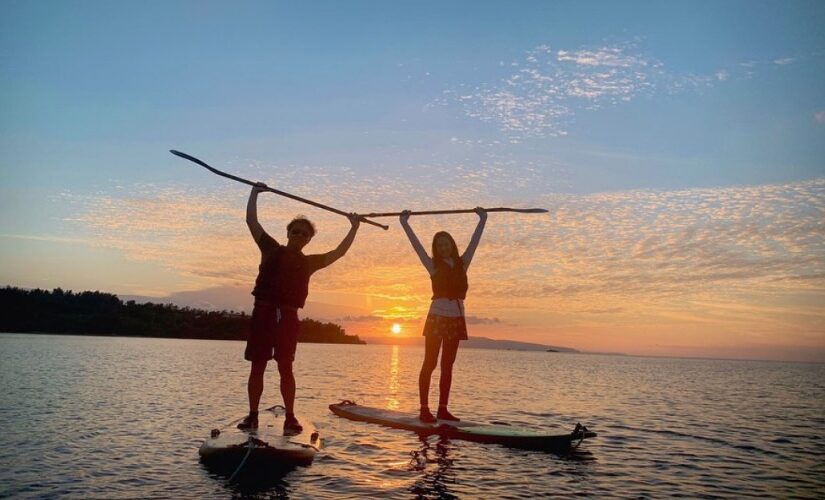 Ishigaki Island/Nagura Bay/Sunset] Same-Day Reservation OK★Sunset & Starry Night SUP Tour《with photo data present》(No.384開始時間18:30-20:30所要時間Approx. 2 hours10,000 yen
Ishigaki Island/Nagura Bay/Sunset] Same-Day Reservation OK★Sunset & Starry Night SUP Tour《with photo data present》(No.384開始時間18:30-20:30所要時間Approx. 2 hours10,000 yen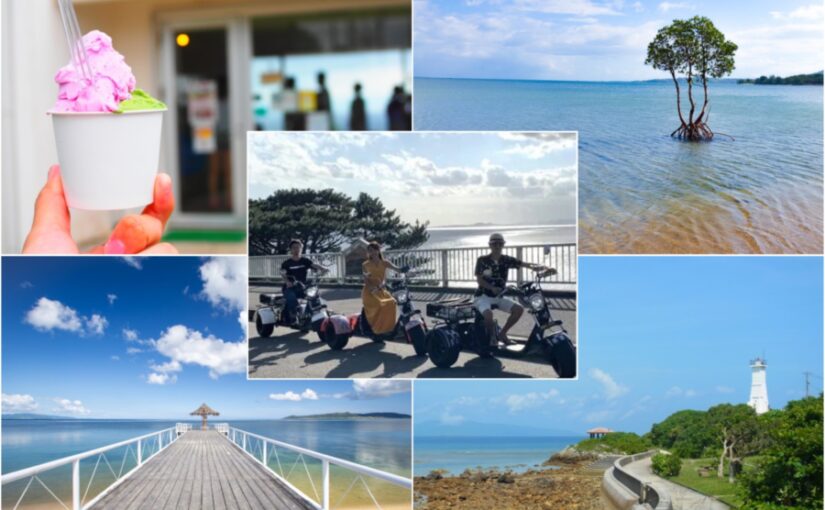 Ishigaki Island/2 hours] Guided tour of scenic spots by EV trike (No.596)開始時間9:00 / 10:00 / 11:00 / 12:00 / 13:00 / 14:00 / 15:00 / 16:00所要時間Approx. 2 hours13,000 yen
Ishigaki Island/2 hours] Guided tour of scenic spots by EV trike (No.596)開始時間9:00 / 10:00 / 11:00 / 12:00 / 13:00 / 14:00 / 15:00 / 16:00所要時間Approx. 2 hours13,000 yenNakura Bay Event! Popular Tours Here
Extra Edition] Mangrove Spots in Iriomote Island
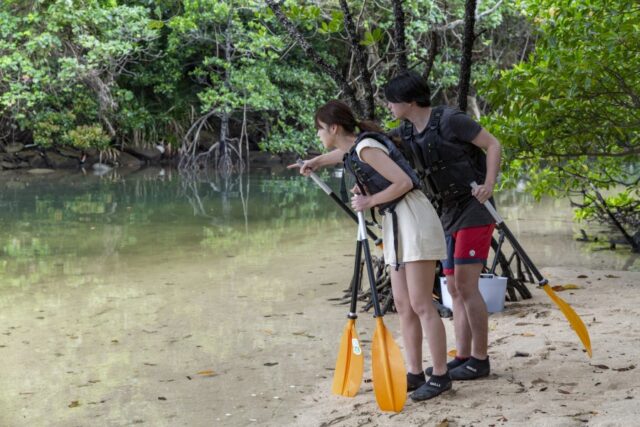
Located about 40 minutes by ferry from Ishigaki Island, Iriomote Island is mostly subtropical jungle and is registered as a World Natural Heritage site.
From Ishigaki IslandMany people go on day trips to enjoy the mangroves.It is.
This section introduces spots on Iriomote Island where mangroves can be seen.
↓From Ishigaki Island! Iriomote Island Day Trip Tour is here↓.
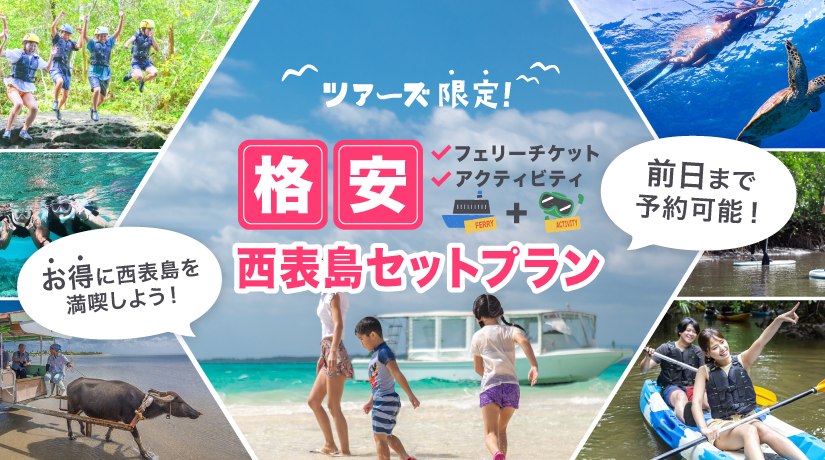 Iriomote Island Tour (with ferry ticket) Great Deal★Set Plan with Round-trip Ferry Ticket from Ishigaki Island to Uehara Port in Iriomote Island Ishigaki Island Tours is now offering a very popular plan that includes a round-trip ferry ticket from Ishigaki Island to Uehara Port in Iriomote Island and activities! You can enjoy your trip more cheaply and economically [...]. (12 total) アクティビティの詳細を見る
Iriomote Island Tour (with ferry ticket) Great Deal★Set Plan with Round-trip Ferry Ticket from Ishigaki Island to Uehara Port in Iriomote Island Ishigaki Island Tours is now offering a very popular plan that includes a round-trip ferry ticket from Ishigaki Island to Uehara Port in Iriomote Island and activities! You can enjoy your trip more cheaply and economically [...]. (12 total) アクティビティの詳細を見る
Pinaisara Falls
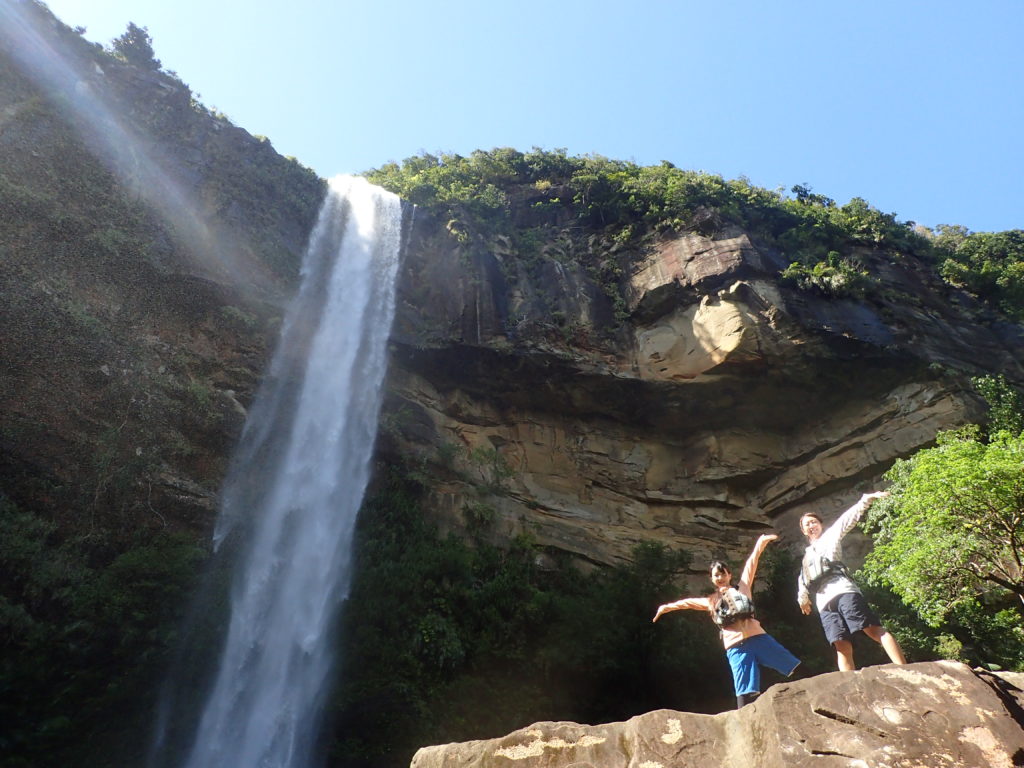
Pinaisara Falls is a powerful waterfall with the largest drop (55 meters) in Okinawa Prefecture.
To Pinaisara Falls,Access by canoe and trekkingWe will do the following. Canoes cruise the mangrove river, and during the trek, visitors can see the saxifrage tree, a tree with large plank roots.
Please experience not only the beauty of the waterfalls, but also enjoy the mangrove forests and subtropical creatures that are unique to the subtropical zone♪.
Click here for Pinaisara Falls Tour Special
Nadala River
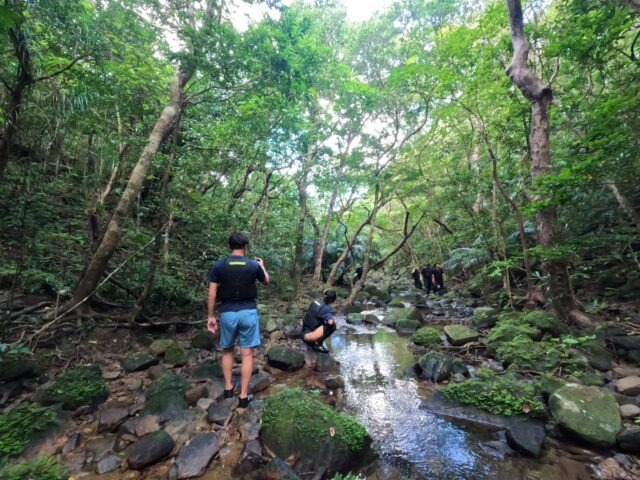
The Nadala River isCrowds of Ojirugi and YaeyamahirugiIt is.
Walking along the mangrove forest of the Nadala River, you will see a single waterfall that is smaller in scale than Pinaisara Falls, but still atmospheric.
You can enjoy trekking on Iriomote Island, a World Natural Heritage site, while experiencing the beauty of nature.
Click here for Iriomote Island Trekking Tour Special
pale chub (Zacco platypus)
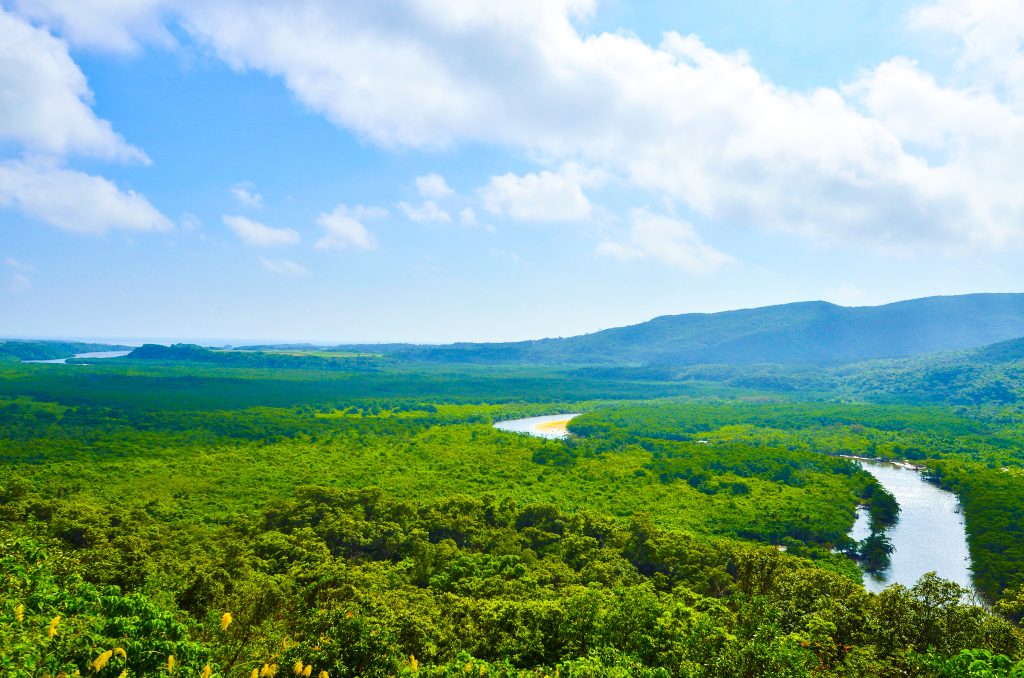
The Nakama River is a vast mangrove that boasts the largest area in Japan. Hirugimodoki and other plants of the Hirugiaceae family can be seen.
The river is wide and scenic boat tours are available,Recommended for those who want to appreciate mangroves effortlessly.It is.
Click here for a sightseeing boat tour of the Nakama River
Must take a boat from Ishigaki Island to Iriomote Island
Buy your ferry tickets in advance!
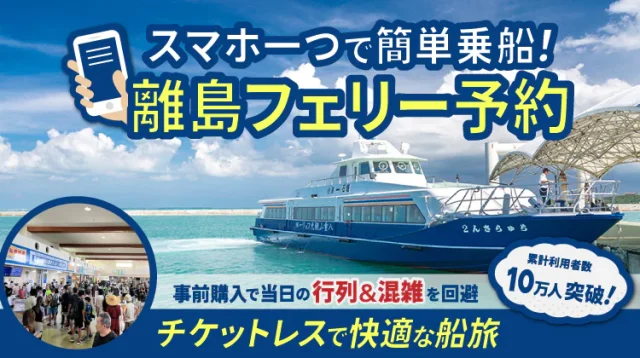
To access Iriomote Island from Ishigaki Island,Ferry boarding is required.It is.
At Ishigaki Island Tours, you can also purchase ferry tickets in advance and check the latest ferry timetable and operation status.
Advance purchase of ferry tickets is convenient for getting to each remote island from Ishigaki Island, so check it out before your trip!
Click here to book ferry tickets.
↓ Click here to read the article in conjunction with ↓ ↓
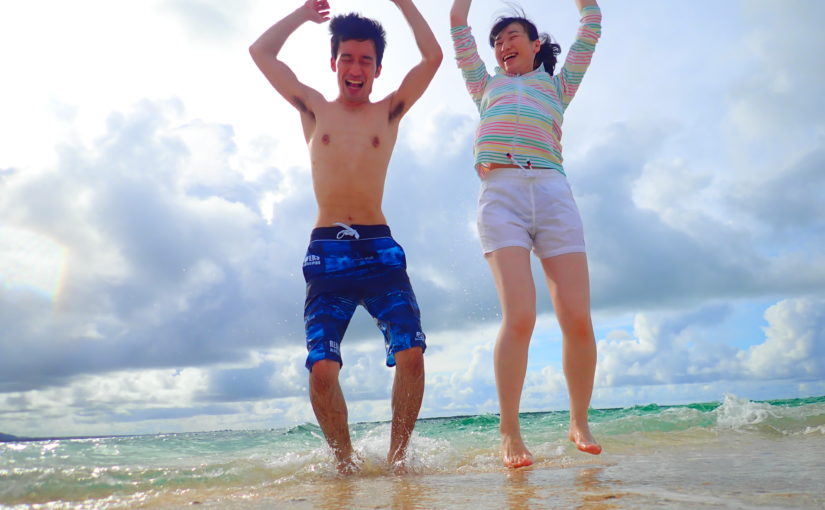 Boarding from Ishigaki Island! Introducing access and recommended spots for remote island ferry!Contents1 Taketomi Island1.1 Access to Taketomi Island from Ishigaki Island1.2 Five Sightseeing Spots on Taketomi Island2 Kuroshima Island2.1 Access to Kuroshima Island from Ishigaki Island2.2 Five Sightseeing Spots on Kuroshima Island3 Iriomote Island3.1 There are two ports on Iriomote Island3.2 Access to Iriomote Island from Ishigaki Island [...].
Boarding from Ishigaki Island! Introducing access and recommended spots for remote island ferry!Contents1 Taketomi Island1.1 Access to Taketomi Island from Ishigaki Island1.2 Five Sightseeing Spots on Taketomi Island2 Kuroshima Island2.1 Access to Kuroshima Island from Ishigaki Island2.2 Five Sightseeing Spots on Kuroshima Island3 Iriomote Island3.1 There are two ports on Iriomote Island3.2 Access to Iriomote Island from Ishigaki Island [...].
Recommended for travel with children!
7 Mangrove Tours in Ishigaki Island
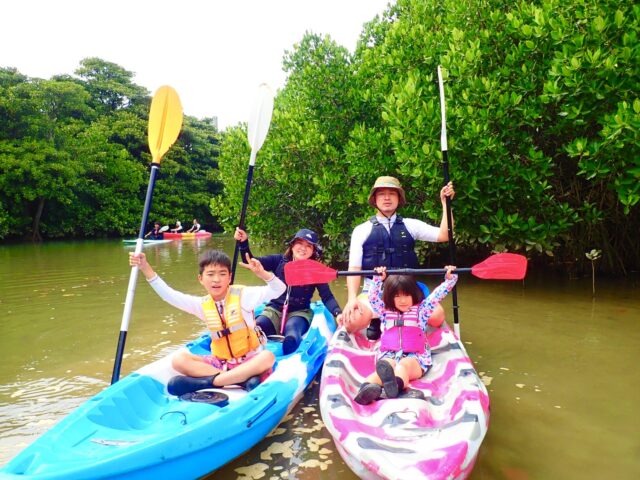
Here are some recommended mangrove tours in Ishigaki Island.
Activities in the mangroves can be enjoyed on calm water, as they are surrounded by trees and are less affected by rain and wind.
Even small children can experience it.Please check it out!
↓ Learn more about mangrove tours ↓
 Ishigaki Island Mangrove Tour Ishigaki Island's unexplored spot☆ Enjoy the charm of nature in mangrove! Mangrove in Ishigaki Island where you can enjoy not only ocean but also mountains and rivers is famous as an activity spot that you should never miss☆ In this article, we will introduce the charm of mangrove in Ishigaki Island and recommended tours [...]. (22 in total) アクティビティの詳細を見る
Ishigaki Island Mangrove Tour Ishigaki Island's unexplored spot☆ Enjoy the charm of nature in mangrove! Mangrove in Ishigaki Island where you can enjoy not only ocean but also mountains and rivers is famous as an activity spot that you should never miss☆ In this article, we will introduce the charm of mangrove in Ishigaki Island and recommended tours [...]. (22 in total) アクティビティの詳細を見る
Same-day reservations OK☆.
Miyara River Mangrove SUP/Canoe
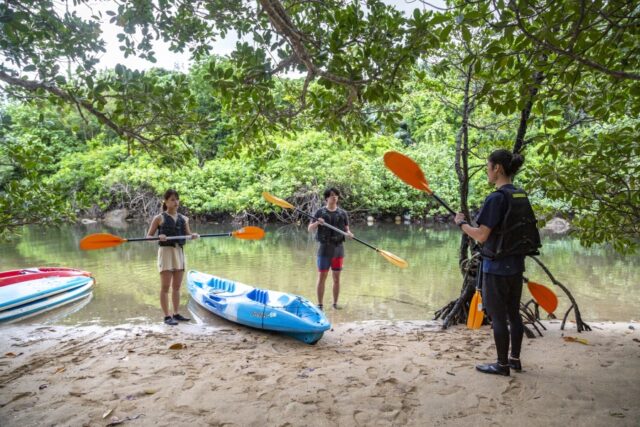
This is a half-day mangrove tour to enjoy the Miyara River, where mangrove forests designated as a national natural treasure grow in clusters.
If you've never canoed or SUP'd before, you're also a certified water rescuer.Guides will be there to support you!
At first it may be difficult to balance on the SUP, but after a few minutes of lecture you will be up and riding in no time.
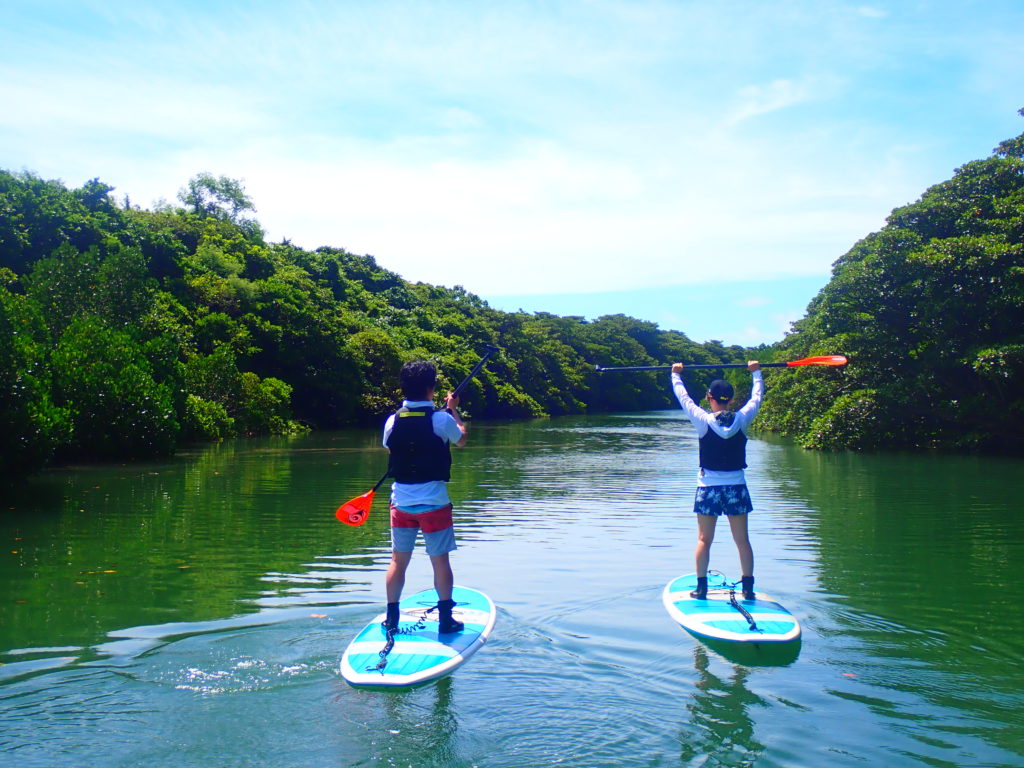
While cruising leisurely, it is fun to observe the subtropical flora and fauna, which are different from those of the sea.
There are mud flats near the mangrove forest of Miyara River, where you can observe plants and animals unique to Ishigaki Island such as kakatsugayu, himegame, and Okinawa sharinbai. Why don't you have a relaxing SUP/canoe experience surrounded by greenery?
Short tour of about 2.5 hoursTherefore, it is easy to incorporate into your itinerary, and anyone can join in!
 Ishigaki Island/Half-day] Same-day reservation OK! Ishigaki Island's longest mangrove canoe tour with free photo and pick-up service at Miyara River, a national natural treasure (No.328)開始時間6:00 / 9:00 / 13:30 / 17:00所要時間Approx. 2.5 hours14,500 yen →7,900yen
Ishigaki Island/Half-day] Same-day reservation OK! Ishigaki Island's longest mangrove canoe tour with free photo and pick-up service at Miyara River, a national natural treasure (No.328)開始時間6:00 / 9:00 / 13:30 / 17:00所要時間Approx. 2.5 hours14,500 yen →7,900yen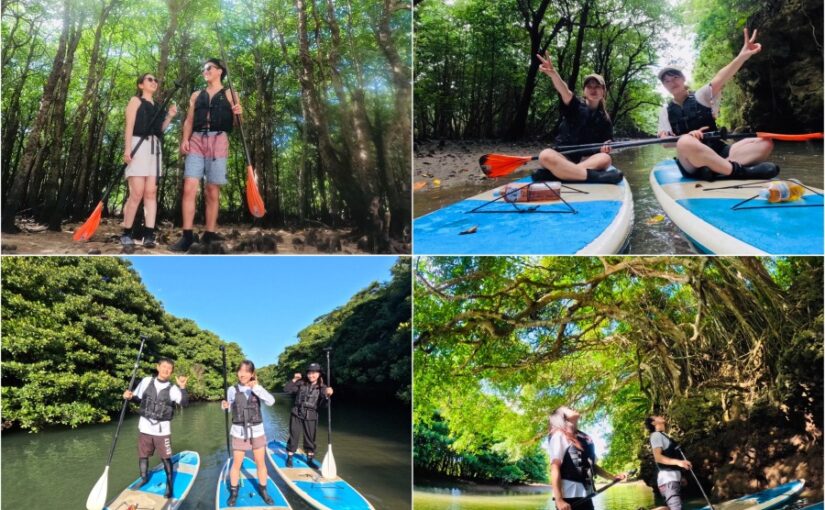 Ishigaki Island/2.5 hours] Same-day reservations OK! Ishigaki Island's longest mangrove SUP tour in the "Miyara River", a national natural treasure ★ <Free photo & pick-up and drop-off included> (No.329)開始時間6:00 / 9:00 / 13:30 / 17:00所要時間Approx. 2.5 hours14,500 yen →7,900yen
Ishigaki Island/2.5 hours] Same-day reservations OK! Ishigaki Island's longest mangrove SUP tour in the "Miyara River", a national natural treasure ★ <Free photo & pick-up and drop-off included> (No.329)開始時間6:00 / 9:00 / 13:30 / 17:00所要時間Approx. 2.5 hours14,500 yen →7,900yen Ishigaki Island Mangrove Kayak (Canoe) Tour
Rankings are here
Also enjoy Nosoko Marpe trekking☆.
Fukiutsu River Mangrove SUP/Canoe
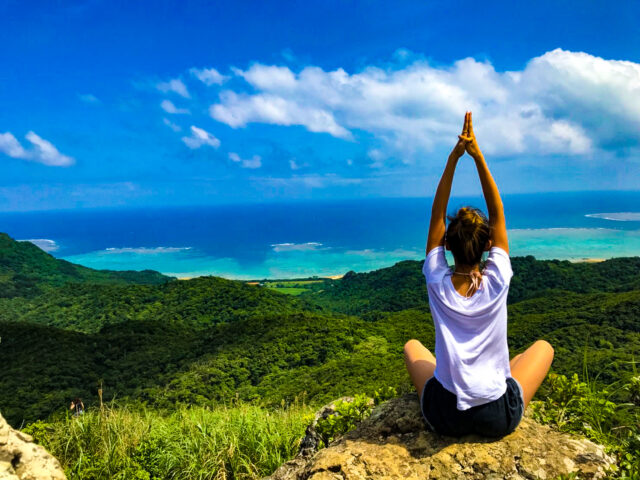
This half-day tour includes a mangrove cruise on the Fukidori River and trekking in Nosoko Marpei.
Nosoko Marpei is the second highest mountain in Ishigaki Island and the contrast of the blue sea and greenery from the top is spectacular!Easy mountain that can be climbed in about 30 minutes.It is.
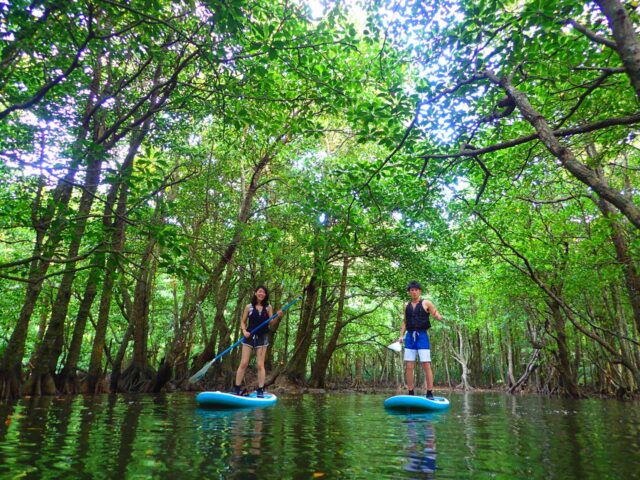
The Fukidori River, where you can enjoy SUP or canoeing, is a compact river with easy access to the upper reaches.
Unlike the ocean, mangroves growing wild on both banks of the river serve as windbreaks, breakwaters, and tidal protection, allowing children and the elderly to enjoy activities in peace.
Even on days when marine activities are cancelled due to strong north winds in winter.Mangrove tours are often offered.So, you can rest assured that your itinerary will not be disrupted!
Please enjoy the unique charm of the mangrove that the ocean does not offer.
 Ishigaki Island】Choice of SUP or Canoe Experience in Fuki-togawa Mangrove & Trekking Tour to "Nosoko Marpei" with 360-degree panoramic view★Optional drone shooting available (No.363)開始時間8:30-15:30所要時間Approx. 7 hours15,000 yen
Ishigaki Island】Choice of SUP or Canoe Experience in Fuki-togawa Mangrove & Trekking Tour to "Nosoko Marpei" with 360-degree panoramic view★Optional drone shooting available (No.363)開始時間8:30-15:30所要時間Approx. 7 hours15,000 yen
Aim for the waterfall of marriage!
SUP/Canoe & Shower Trekking
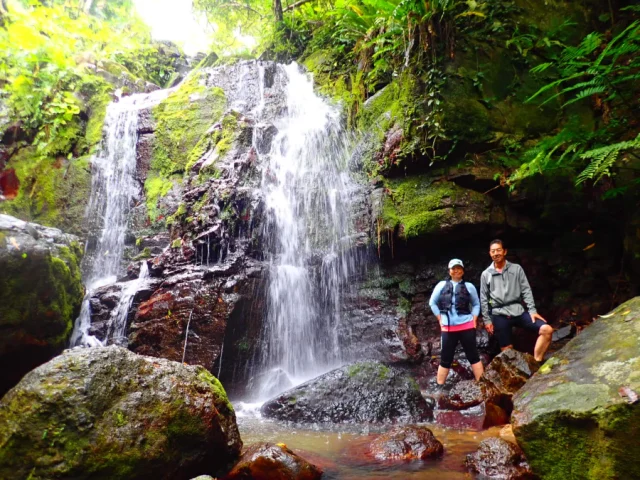
Also called the waterfall of marriageSUP or canoe along the Fukidori River to Yabiku FallsProceed with the
Explore the river overgrown with mangrove trees while feeling adventurous!
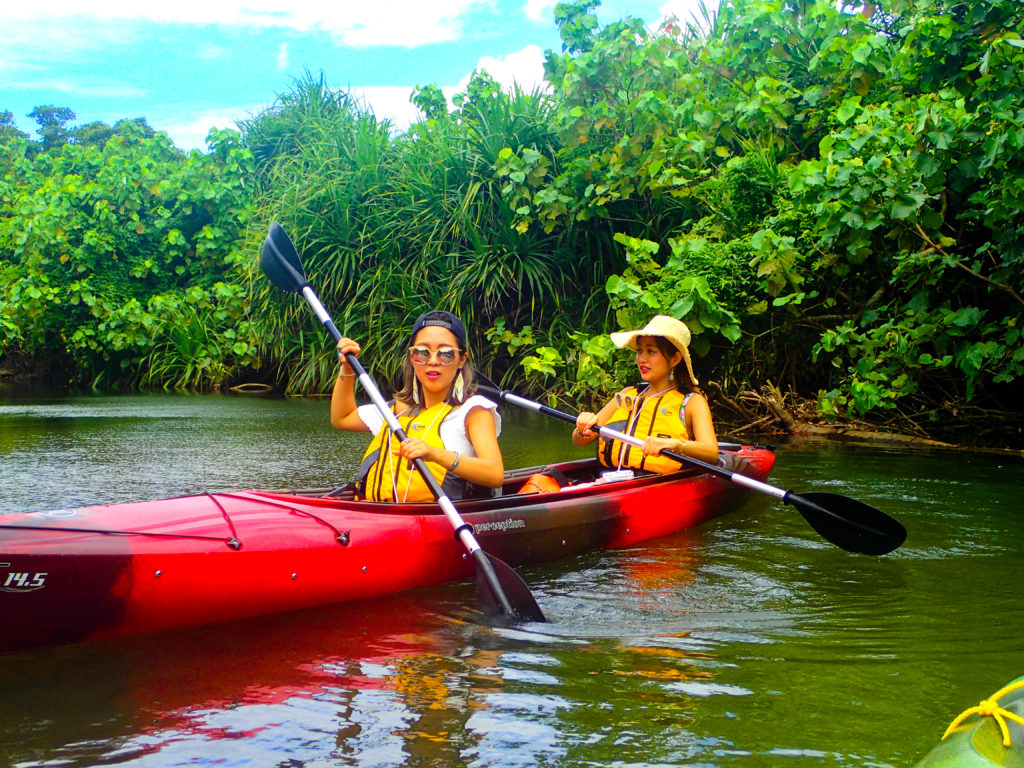
You can choose between SUP and canoeing, or your favorite activity.
The stylish SUPs, which originated in Hawaii, can be posed in a variety of poses, and their small turns allow them to approach the intricacies of the riverbanks and enjoy a wide variety of activities.
Canoes are highly stable and buoyant, and are recommended for children because they can be operated by two people without difficulty.
 Okinawa, Ishigaki Island] [Yabiku Waterfall] Aim for the "Waterfall of Marriage"! Mangrove Canoe & Shower Trekking Tour (No.308)開始時間8:00-11:00 / 13:00-16:00所要時間Approx. 3 hours8,900 yen
Okinawa, Ishigaki Island] [Yabiku Waterfall] Aim for the "Waterfall of Marriage"! Mangrove Canoe & Shower Trekking Tour (No.308)開始時間8:00-11:00 / 13:00-16:00所要時間Approx. 3 hours8,900 yen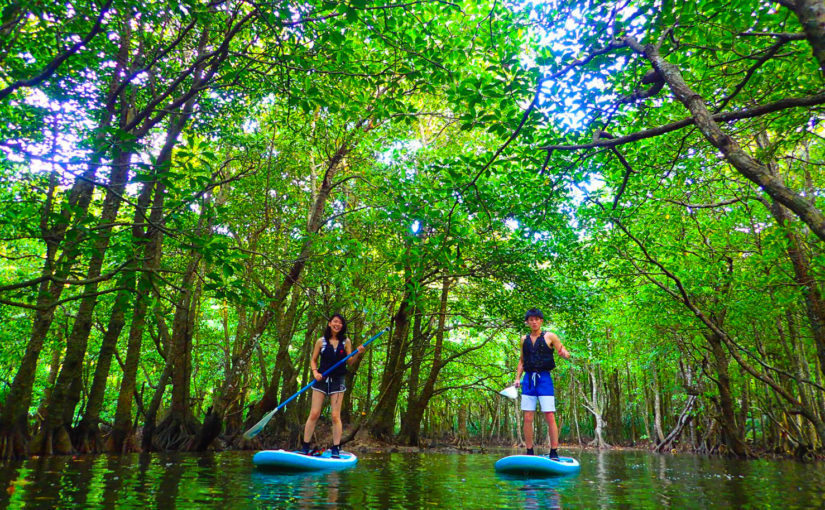 Okinawa, Ishigaki Island] [Yabiku Waterfall] Aim for the "Waterfall of Marriage"! Mangrove SUP & Shower Trekking Tour (No.307)開始時間8:00-11:00 / 13:00-16:00所要時間Approx. 3 hours8,900 yen
Okinawa, Ishigaki Island] [Yabiku Waterfall] Aim for the "Waterfall of Marriage"! Mangrove SUP & Shower Trekking Tour (No.307)開始時間8:00-11:00 / 13:00-16:00所要時間Approx. 3 hours8,900 yen
Enjoy both the ocean and the river!
SUP/Canoeing & Snorkeling
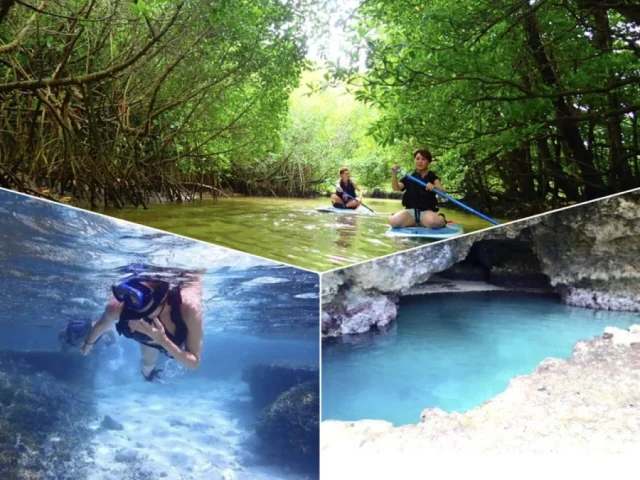
Next up is a one-day plan that includes SUP/canoe cruising in the mangroves and snorkeling in the Blue Cave.
Half a day is spent beside various hirgitaceae plants.Enjoy the mangroves in a relaxed atmosphereI will do so.
While cruising, you can pass through cave-like areas and observe subtropical flora and fauna, and because the river is somewhat wide, you can enjoy activities with a high degree of freedom.
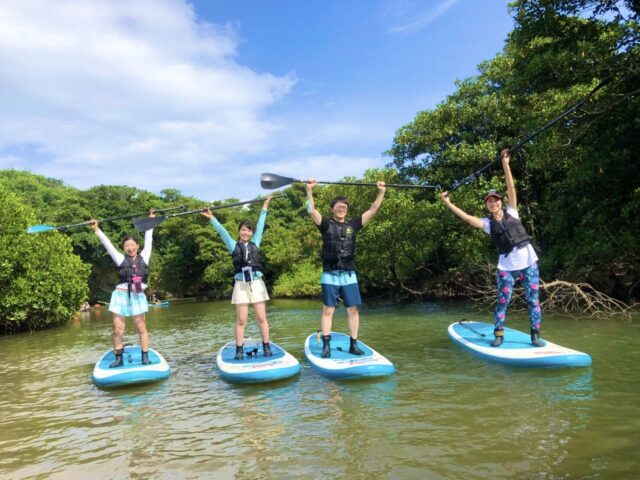
The order of activities may change back and forth, but a half day after lunch is snorkeling in the Blue Cave.
You enter from land and head inside the cave, but since the Blue Cave has only one entrance from the ocean side, it gets darker and darker as you go in.
Looking back at the entrance, the inside of the cave will be glowing blue from the reflection of the sun.
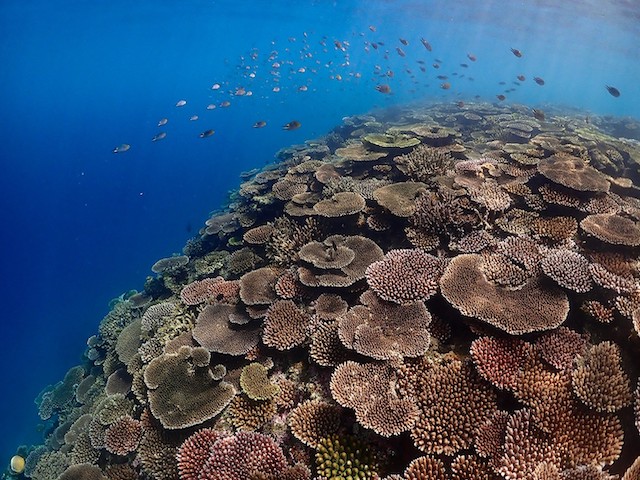
When snorkeling into the Blue Cave, you will be enveloped in a mysterious world of pure blue that is sure to impress! Depending on the tide level, you may be able to go deeper into the cave and see skylights and stalactites of various shapes.
You can also enter from the shallow beach and observe colorful tropical fish in the knee-deep shallows.
Around the limestone caves.Colorful coral reefs and tropical fish aboundSnorkeling inside and outside the caves is also available.
 Special Winter SALE [Ishigaki Island/1 day] Conquer the ocean and river☆Longest in Ishigaki Island! Miyara River Mangrove SUP/Canoe & Blue Cave Snorkeling Tour★ (No.362)開始時間6:00-11:15 / 9:00-15:45 / 13:30-20:15所要時間Approx. 5 hours29,000 yen →13,500yen
Special Winter SALE [Ishigaki Island/1 day] Conquer the ocean and river☆Longest in Ishigaki Island! Miyara River Mangrove SUP/Canoe & Blue Cave Snorkeling Tour★ (No.362)開始時間6:00-11:15 / 9:00-15:45 / 13:30-20:15所要時間Approx. 5 hours29,000 yen →13,500yen↓Learn more about the Blue Cave
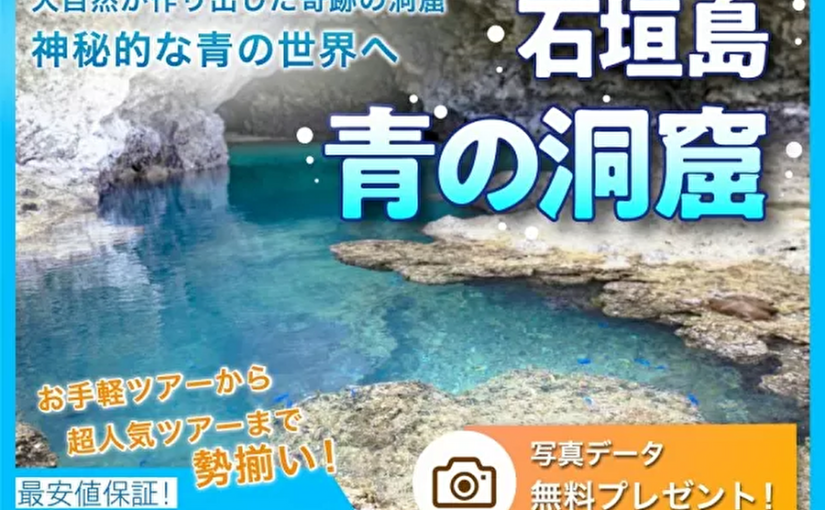 Blue Cave Tour A fantastic cave spot in Ishigaki Island! Blue Cave" where you can also enjoy snorkeling "Blue Cave" in Ishigaki Island is a popular snorkeling and diving spot with mysterious blue light. The sunlight shining into the cave reflects off the white sand of the sea bottom, creating a fantastic [...]. (25 total) アクティビティの詳細を見る
Blue Cave Tour A fantastic cave spot in Ishigaki Island! Blue Cave" where you can also enjoy snorkeling "Blue Cave" in Ishigaki Island is a popular snorkeling and diving spot with mysterious blue light. The sunlight shining into the cave reflects off the white sand of the sea bottom, creating a fantastic [...]. (25 total) アクティビティの詳細を見る
Includes landing on the popular "Phantom Island"☆.
Snorkeling & SUP/Canoeing
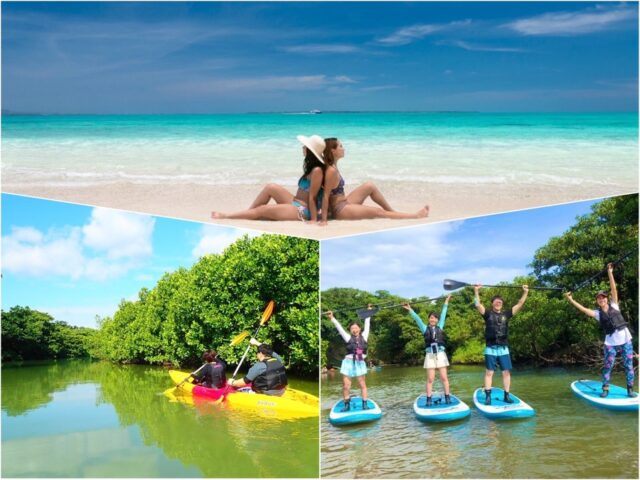
This one-day tour includes snorkeling and mangrove cruising on the uninhabited "Phantom Island", which you should visit at least once when you visit Ishigaki Island.
Phantom Island (official name: Hamashima) appears and disappears from the sea depending on the tide level.
There is no vegetation, and the white sand is very beautiful, glistening in the sunlight,360° ocean viewThis is a spectacular spot where you can enjoy the
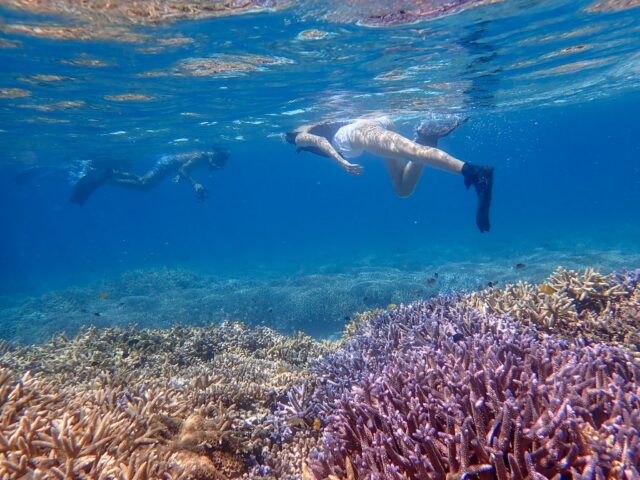
Near Phantom Island is a vast coral reef called "Shihsi lagoon," which is a popular snorkeling spot.
Both mangrove SUP/canoeing and phantom island snorkeling are top-class popular spots & activities in Ishigaki Island, so please join us!
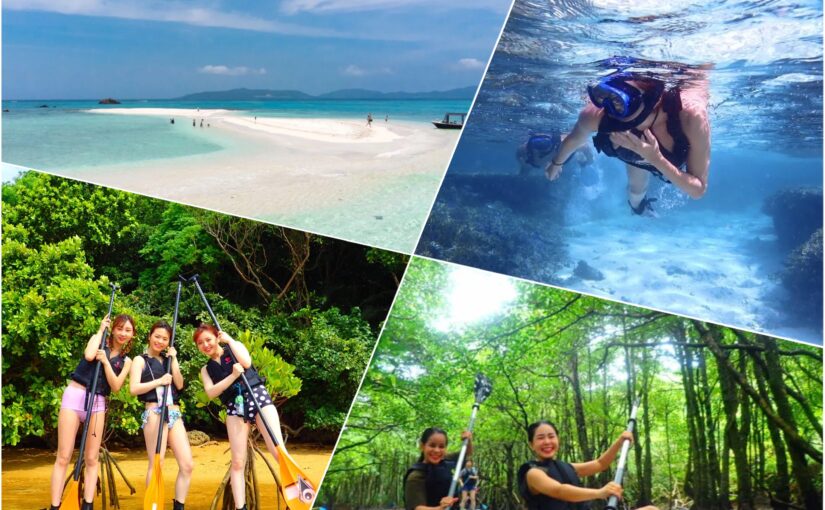 Ishigaki Island / 1 Day] Same-Day Booking OK! Landing on a Phantom Island & Snorkeling & Mangrove SUP or Canoeing (with free photo and pick-up) (No.457)開始時間6:00-11:30 / 8:00-16:00 / 13:30-20:15所要時間Approximately 5.5 hours29,000 yen →15,000yen
Ishigaki Island / 1 Day] Same-Day Booking OK! Landing on a Phantom Island & Snorkeling & Mangrove SUP or Canoeing (with free photo and pick-up) (No.457)開始時間6:00-11:30 / 8:00-16:00 / 13:30-20:15所要時間Approximately 5.5 hours29,000 yen →15,000yen↓Learn more about the island
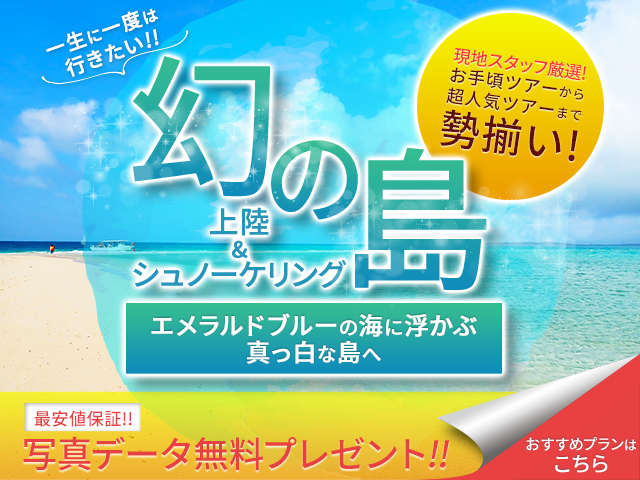 Phantom Island (Hamashima) Tour The hottest spot from Ishigaki Island! There is a spot called "Phantom Island (official name: Hamashima)" located about 30 minutes by boat from Ishigaki Island. It appears only at low tide when the tide is ebbing, and sinks like a phantom at high tide. (47 total) アクティビティの詳細を見る
Phantom Island (Hamashima) Tour The hottest spot from Ishigaki Island! There is a spot called "Phantom Island (official name: Hamashima)" located about 30 minutes by boat from Ishigaki Island. It appears only at low tide when the tide is ebbing, and sinks like a phantom at high tide. (47 total) アクティビティの詳細を見る
Conquer popular spots by SUP and canoe!
Kabira Bay & Miyara River Cruise
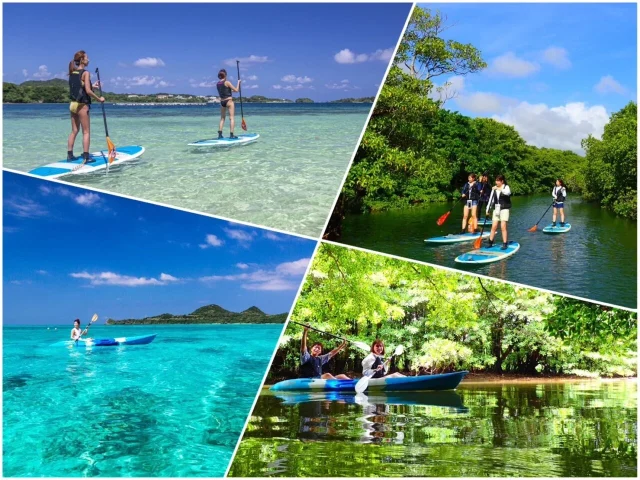
You can enjoy SUP and canoeing in "Kabira Bay", the most scenic spot in Ishigaki Island, and "Miyara River", a typical mangrove spot.
This tour is recommended for active people who want to experience the nature of Ishigaki Island while exercising!
A free tour photo gift is also included.Enjoying the spectacular view to the fullestYou'll have great memories that you'll want to look back on later.
 ★Winter Special SALE 【Ishigaki Island/1 Day】Supp/Canoe Tour with Choice of Popular Spots☆Kabira Bay & Miyara River Mangrove (No.528)開始時間6:00-11:15 / 9:00-15:45 / 13:30-20:15所要時間Approx. 7 hours29,000 yen →15,000yen
★Winter Special SALE 【Ishigaki Island/1 Day】Supp/Canoe Tour with Choice of Popular Spots☆Kabira Bay & Miyara River Mangrove (No.528)開始時間6:00-11:15 / 9:00-15:45 / 13:30-20:15所要時間Approx. 7 hours29,000 yen →15,000yen↓Learn more about Kabira Bay
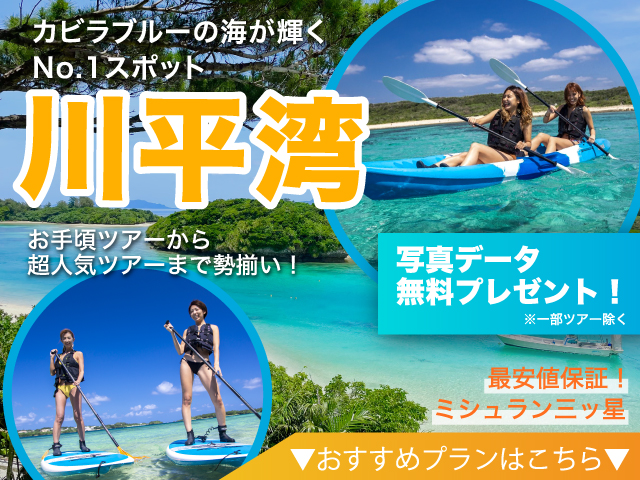 Kabira Bay Tour A must visit when you come to Ishigaki Island! Kabira Bay in Ishigaki Island is rated as a three-star scenic spot worth visiting by the guidebook "Michelin Green Guide Japon". In this issue, we will introduce Kabira Bay's [...]. (36 in total) アクティビティの詳細を見る
Kabira Bay Tour A must visit when you come to Ishigaki Island! Kabira Bay in Ishigaki Island is rated as a three-star scenic spot worth visiting by the guidebook "Michelin Green Guide Japon". In this issue, we will introduce Kabira Bay's [...]. (36 in total) アクティビティの詳細を見る
Recommended on the morning of the last day!
Sunrise Mangrove SUP
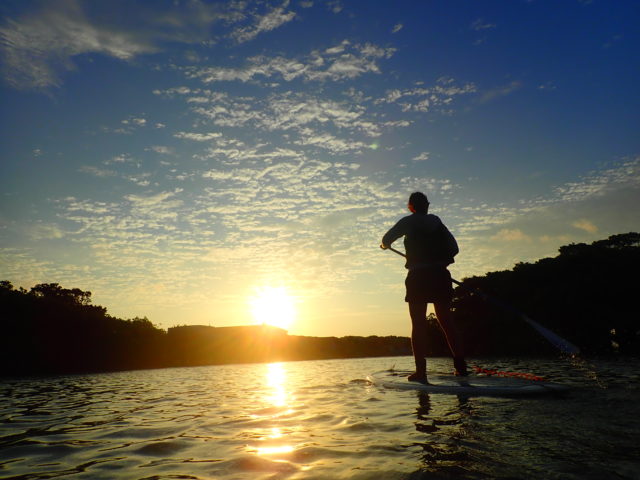
The last tour we will introduce is Sunrise Mangrove SUP.
Sunrise Mangrove SUP cruises along the mangrove river while listening to the sounds of subtropical flora and fauna.
The event is held in the early morning when there are few people around, so you can start your day in a relaxed and pleasant manner,Tours recommended for the last day when time is limited.It is.
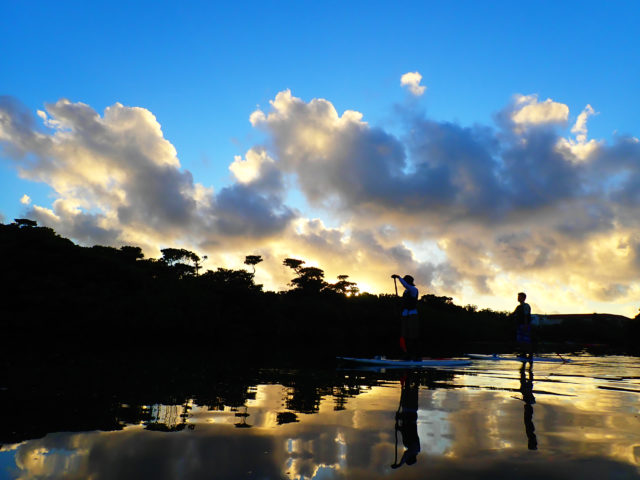
Once you reach the ocean where you can see the horizon, wait for sunrise. Early in the morning, the ocean, rivers, and air are especially clear in the day, and as you move your body while breathing in the clear air, you feel as if your whole body is being cleaned.
Also, the sight of the sea of Ishigaki Island gradually turning into the morning glow is very beautiful and will make you feel cheerful.
Breakfast is delicious when you get moving in the morning, so please wake up a little earlier and enjoy the cruise to enjoy breakfast♪
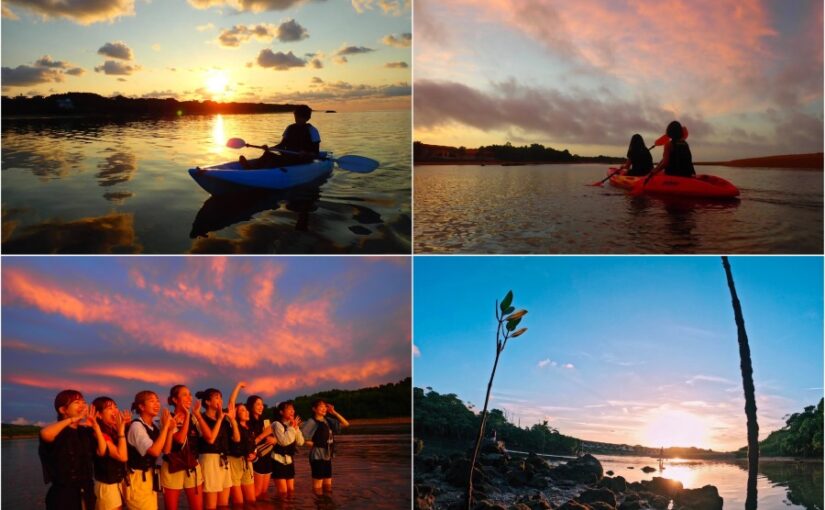 Special Winter SALE [Ishigakijima/Early Morning] Let's enjoy sunrise in Ishigaki Island☆Sunrise kayak tour to feel the sunrise★Free photo & transportation included (No.312)開始時間6:00-8:30 a.m.所要時間Approx. 2.5 hours14,500 yen →7,900yen
Special Winter SALE [Ishigakijima/Early Morning] Let's enjoy sunrise in Ishigaki Island☆Sunrise kayak tour to feel the sunrise★Free photo & transportation included (No.312)開始時間6:00-8:30 a.m.所要時間Approx. 2.5 hours14,500 yen →7,900yen
What to wear when visiting the mangroves of Ishigaki Island
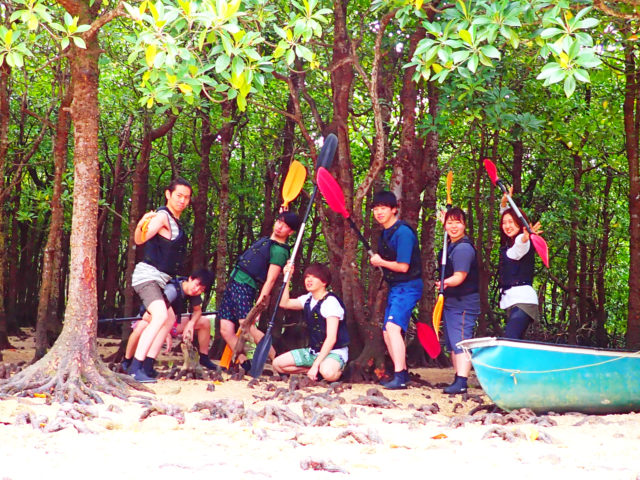
When going to the mangroves, consider getting at least the lower half of your body wet,Clothing that can get wet or dirtyChoose the
Canoes rarely capsize, but there is a possibility of getting wet when sitting in them or getting the oars wet from the water they are exposed to.
Regarding the Mangroves of Ishigaki Island
Frequently Asked Questions (FAQ)
Especially Nagura AmparuNational MonumentIt is designated as a protected area, and a rich ecosystem centered on mangroves spreads across it.
Many tours are also available, so even beginners can enjoy the observation with peace of mind.
During this season, temperatures stabilize and wildlife becomes more active, making observation even more enjoyable.
During the summer, take precautions against the sun and use guided tours for greater safety.
Canoes and SUPs are highly stable,Guides provide attentive supportIt gives me peace of mind.
Age restrictions and safety requirements vary by tour, so we recommend checking in advance.
summary
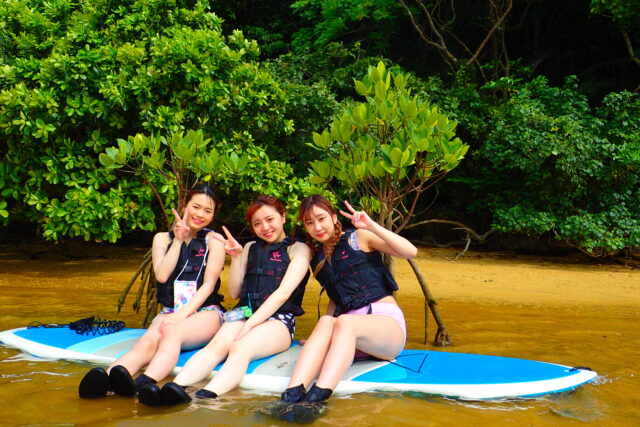
How about the mangrove spots in Ishigaki Island and the creatures that can be seen in the mangroves?
On Ishigaki Island, you can see the most magnificent mangroves imaginable.
Of course, the ocean is wonderful, but we also recommend playing in the mangroves, where you can experience forest bathing at least once during your trip!
↓Click here to read the article.
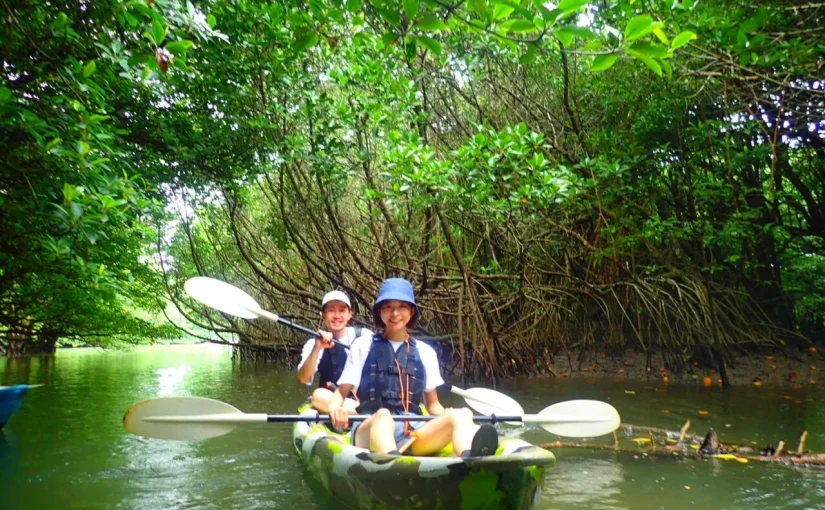 Nature exploration tour in the ocean and rivers of Ishigaki Island! Let's go canoeing (kayaking)!Ishigaki Island is surrounded by beautiful ocean and lush subtropical virgin forest. There are more than 100 fun things to do here, and the best among them is canoeing. Here we introduce the spots where you can play canoeing.
Nature exploration tour in the ocean and rivers of Ishigaki Island! Let's go canoeing (kayaking)!Ishigaki Island is surrounded by beautiful ocean and lush subtropical virgin forest. There are more than 100 fun things to do here, and the best among them is canoeing. Here we introduce the spots where you can play canoeing.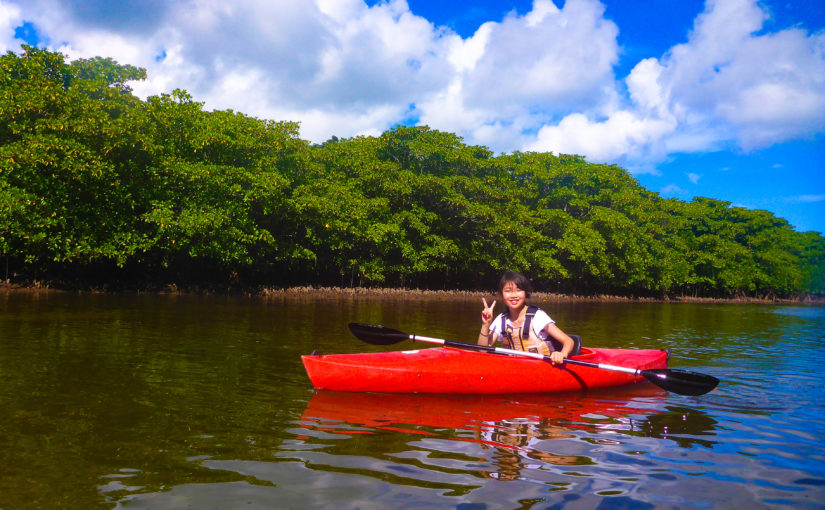 Popular kayaking experience in Ishigaki Island! River kayak and sea kayak thoroughly explained!If you want to experience close to nature in Ishigaki Island, kayaking activity tour is recommended! Both river kayak and sea kayak, you can fully enjoy the tropical atmosphere of Ishigaki Island.
Popular kayaking experience in Ishigaki Island! River kayak and sea kayak thoroughly explained!If you want to experience close to nature in Ishigaki Island, kayaking activity tour is recommended! Both river kayak and sea kayak, you can fully enjoy the tropical atmosphere of Ishigaki Island.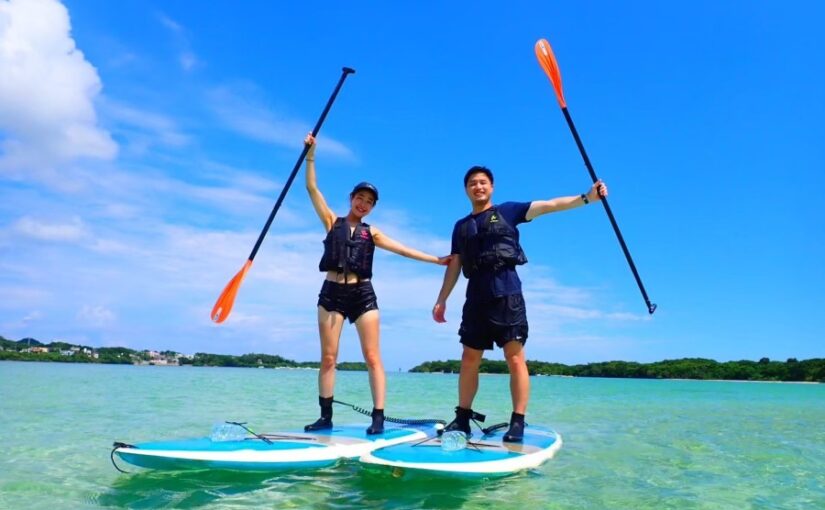 A thorough guide to SUP on Ishigaki Island! Complete coverage from 5 recommended tours & popular spots to information for beginners!Ishigaki Island is a great place for SUP cruises with the rich natural background of Kabira Bay with its outstanding transparency and mangrove forests. Here are some of the most carefully selected spots.
A thorough guide to SUP on Ishigaki Island! Complete coverage from 5 recommended tours & popular spots to information for beginners!Ishigaki Island is a great place for SUP cruises with the rich natural background of Kabira Bay with its outstanding transparency and mangrove forests. Here are some of the most carefully selected spots.
